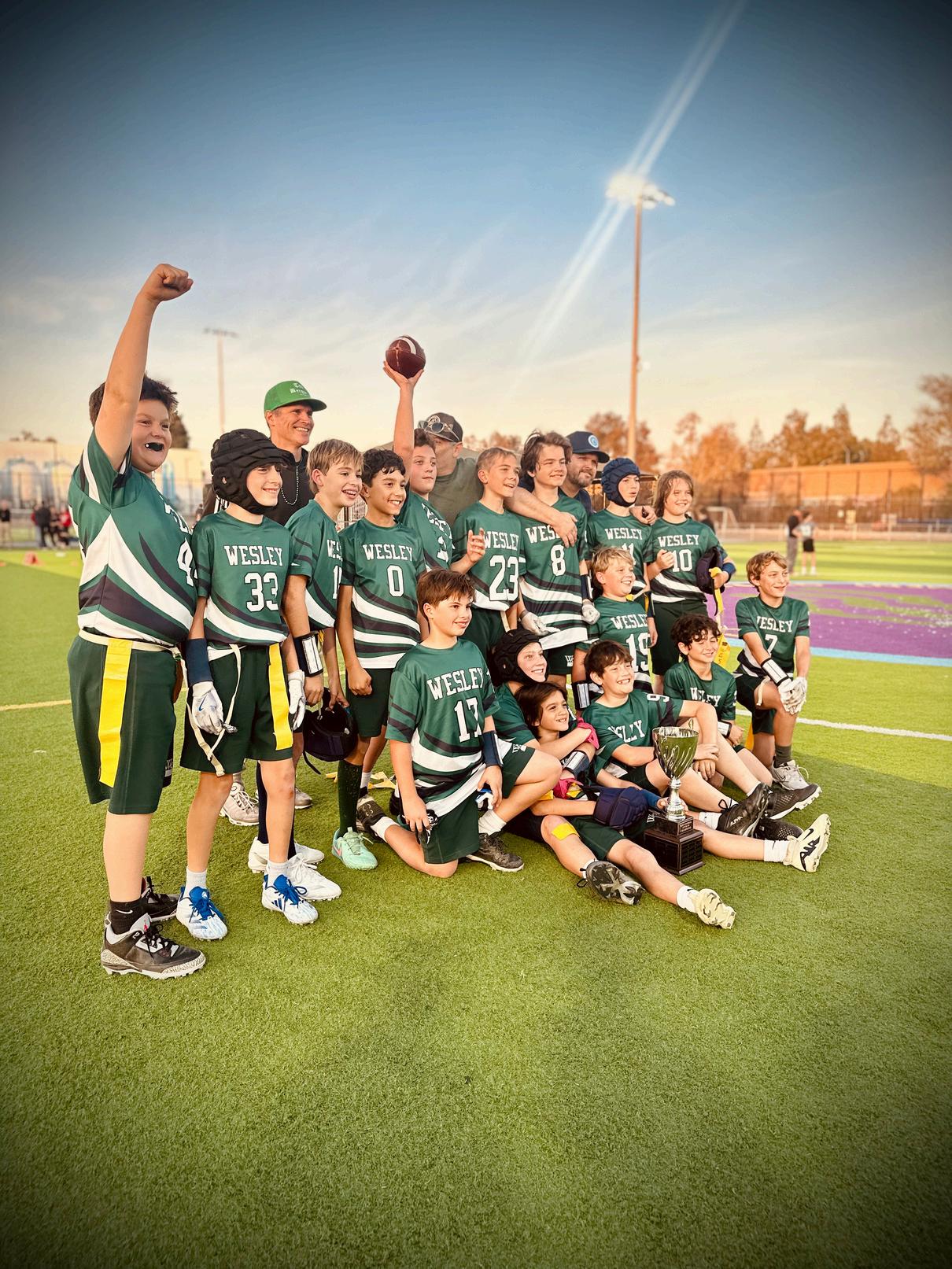


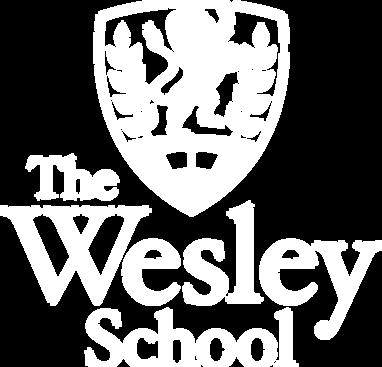





as of September 2025

Introduction
Mission Statement
Notice of Nondiscriminatory Policy
Board of Trustees & Leadership Team
Strategic Plan & Wesley Pawprints
School Hours, Attendance, and Dismissal
Office Hours
Important Contact Information
General Daily Schedule
School Cancellation
Absences and Tardiness
Arrival, Dismissal, and Pick Up Procedures
Parking
Communication
The Wesley Weekly Email
Veracross
WhatsApp Chats
Parents’ Association
Parent Questions about Children Flowchart
Dress Code Requirements
Uniform Policy & Guidelines
Uniform Recycle Sales
Emergency Preparedness
Disasters and Emergencies
Student Pick Up Procedures During an Emergency
Fire and Emergency Drills
Curriculum
Curriculum Overview
Lower School Curriculum
Middle School Curriculum
Assessment and Evaluation
Lower School Assessment and Evaluation
Middle School Assessment and Evaluation

Learning Resources
Learning Resource Specialists
Academic Support Policy
Academic and Citizenship Information
Lower School Skills Indicator for Grades K - 5
Middle School Grading Scale
Academic Integrity
AI Policy
Academic Success and Support
The Counseling Department
After-School Athletics Eligibility, Dismissal, and Sports Contract
Homework Policies
Assessments
External Testing
Service Learning and Community Service
Academic and Special Awards in Middle School
Field Trips and Experiential Learning
Community Expectations
Expectations for All Community Members
Whole-Child Approach for Students
Bullying
Incidents of Bias
Responsive Strategies for Learning and Restoration
Health, Medical Emergency, and Medication Forms
Medical Emergencies
Medication Administration
Health and Immunization Requirements
Protocols for Contagious Diseases
Return to School Protocols
Mandated Reporting
Acceptable Use of Technology Policy
Proper Usage
Communication Safety and Privacy
Digital Citizenship
Security, Passwords, and Vandalism
Copyright & Plagiarism
Technology Misuse

We are delighted to share with our families this Handbook, which is intended to outline the values, programs, and policies of The Wesley School. The Handbook is part of our ongoing effort to foster healthy and meaningful relationships among families, students and all community members, based upon our mutual interest in the educational and personal development of children while they are students at The Wesley School. This Handbook is not all-inclusive, but it is intended to provide families with a summary of some of the school’s most critical guidelines. Please note that the Wesley School does continue to review, refine and adapt the Handbook and the policies within, and it reserves the right to do so at any time.
One of the most essential aspects of this Handbook is our effort to establish a shared understanding of what families and the school can expect from our partnership together, as demonstrated in the “How We PlayCommunity Expectations” document . We ask that all families carefully read and understand the information in the Handbook, and in the event that you have questions regarding any of the policies or procedures herein we

students gain a deep understanding of themselves and are inspired to act with compassion and integrity to make the world a better place.


The Wesley School admits students of any race, color, national and ethnic origin, gender, gender identity or expression, sexual orientation, religion, disability, or socioeconomic background to all the rights, privileges, programs, and activities generally accorded or made available to students at the School. We do not discriminate on the basis of any of those identifiers in administration of its educational policies, admissions policies, scholarship and loan programs, and athletic and other school-administered programs.
Chair
Vice Chair

David Monahan
Jenny Hollier
Secretary Marissa Seeman
Treasurer Alan Waldman
CODI Chair
Toi Bridges
Head of School Greg Armbrister
Head of Lower School Krysten Fort-Catanese
Head of Middle School
Director of Admissions & Communications
Director of Curriculum and Instructional Technology
Director of Development
Director of Diversity, Equity, Inclusion & Belonging
Director of Finance and Operations
Director of IT
Jeff Baird
Lindsey Drasin
LeLoni Bass
Tammy Rodriguez
Ashley Greene
Geo Huff
Brad Benhain
The Wesley Strategic Plan represents the culmination of a two-year effort that was led by the Board in collaboration with our Head of School. The result was a new focused mission statement and the creation of five essential ‘Pawprints’ that will be implemented across the school in service to our students.



Goal Statement: Cultivate a vibrant community of belonging that engages and inspires all Wesley constituents.
Goal Statement: Refine a Wesley educational philosophy that advances critical thinking, creativity, and compassion.
Goal Statement: Commit to a professional culture that attracts and supports diverse, mission-aligned faculty and staff and inspires collaboration and innovation.
Goal Statement: Elevate our reputation as a school that nurtures joyful academic engagement, embraces inclusivity, and develops social emotional competency.
Goal Statement: Create a sustainable financial model that supports accessibility, outstanding faculty and staff, and program growth.
Office Hours: 7:30am - 4:00pm, Monday – Friday
Website: www.wesleyschool.org
Office phone: (818) 508-4542
Office fax: (818) 508-4570
Admissions Office: (818) 508-4717
Athletics Dept: (818) 636-4338
LEAP Phone: (818) 281-6231 (after 4:00pm Mon – Fri)
7:30am Morning daycare/school office opens
7:50am Commons open
8:15am School begins
2:50 (1:05 on Fridays) Kindergarten dismissal
3:00pm (1:15 on Fridays) Lower School dismissal
3:15pm (1:30 on Fridays) Middle School dismissal
4:00pm Office closes
6:00pm LEAP ends
In the event that school is canceled for any reason, parents and students will be notified through our emergency notification system through an email, phone call, and text.
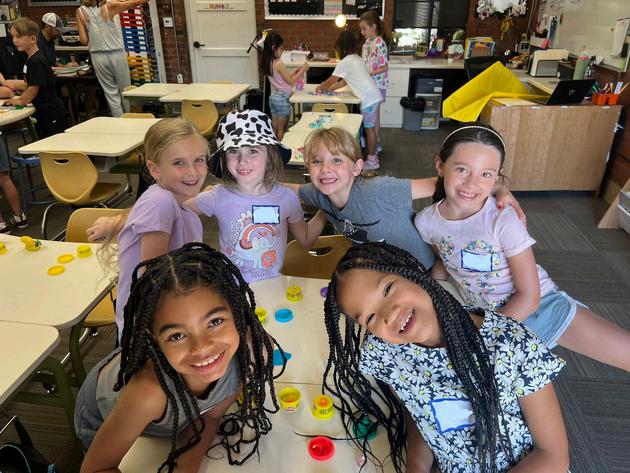

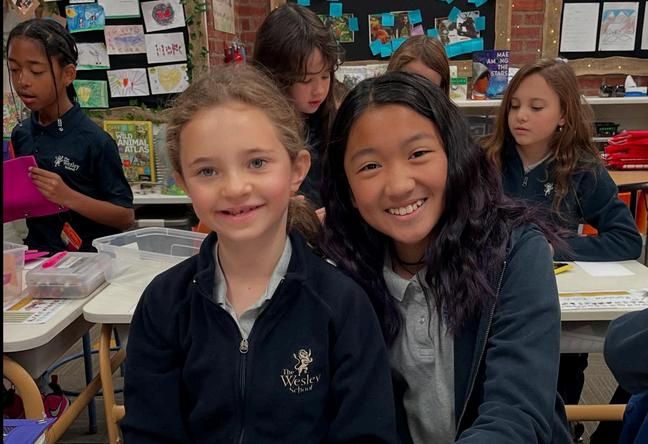


At Wesley, we deeply value each individual child s presence on campus whether in academic classes or co-curricular activities. The only way to maximize the full Wesley experience is to be physically present and on time.
We understand that absences and tardiness are sometimes unavoidable. If your child must miss school, please notify the school office by emailing absent@wesleyschool.org as soon as possible. Absences of more than two consecutive days require a note from a doctor. Students who arrive late must check in at the office and receive a tardy slip to be turned in to their teacher.
We greatly appreciate families scheduling any appointments after school whenever possible. If that isn’t feasible, please arrange appointments to cause the least disruption to the academic day for example, on early dismissal days.
If you are anticipating a planned, long-term absence, please notify the school office and the appropriate Program Head as far in advance as possible. Parents must understand that it is the student’s responsibility to fully make up for any missed work. Teachers will collaborate with families as much as they are able—to provide structure for the student, but time away from the classroom is inherently irreplaceable. For planned extended absences, we ask that you provide at least two weeks' notice so teachers can prepare the materials the student will be expected to complete.
Communication is critically important in the Wesley partnership between school and home. Parents/caregivers will be contacted via phone or email when a student accumulates five tardies or absences in a single trimester. Habitual absences or tardiness will result in a parent conference with the appropriate Program Head or Head of School.

Additionally, students with excessive absences or tardiness may become ineligible to participate in off-campus activities or retreats. This decision is made with great care and reflects our commitment to student safety, as well as the importance of participating in the instructional and behavioral guidance that takes place on campus in preparation for these experiences.
Finally, please be aware that all schools request attendance records as part of transcript reviews. While we offer understanding and flexibility when needed consistent timel attendance is essential to academic progress
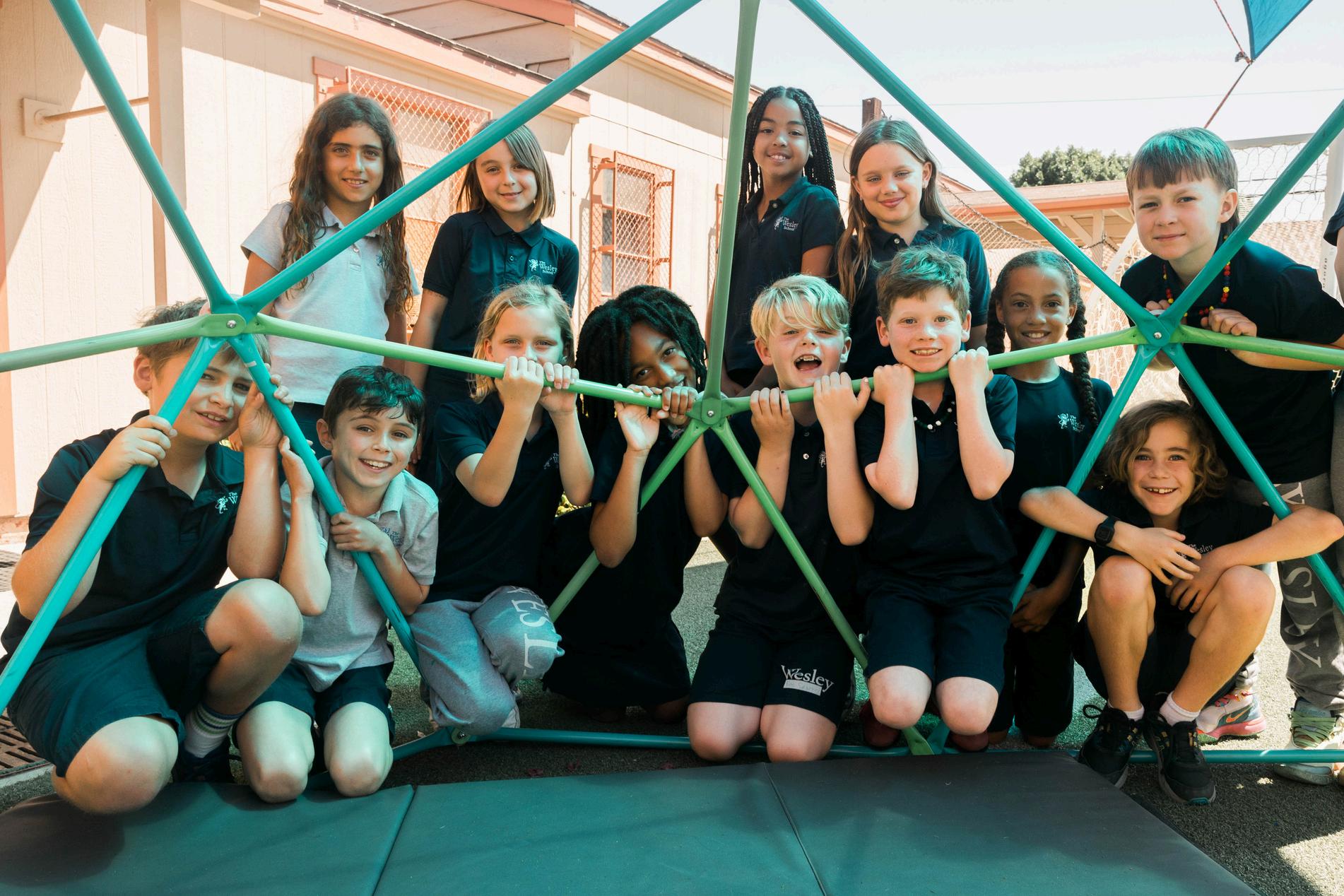
Nothing is more important than the safety of our students. Therefore, the School parking lots are the only areas that should be used for morning drop-off of students from a vehicle.
During morning and afternoon carpool times for drop-off and pick-up, entry into and exit from the main (south) parking lot and the north parking lot will be from Tujunga Ave. through the driveways. In the north lot, Kindergarten and 5th–8th grade students are dropped off next to Kinderland, then cars exit by turning right onto Bakman Ave. In the south lot, students will be dropped off as follows: grades 1st & 4th are dropped off at the end of the “U”, adjacent to the P.E. office. Exit is straight ahead via a right turn onto Bakman Ave. Grades 2nd & 3rd go around the “U” and drop off at the last gate adjacent to the FUMC offices and near Tujunga. Exit is via right turn onto Tujunga.


Important: Please be patient and do not attempt to pass any vehicles in order to get to a drop-off area or exit. In the interests of student and staff safety, we also ask that all drivers refrain from cell phone use of any type while driving through any of the parking areas.
Early morning drop-off – 7:30* to 7:55am
Drop-off for all students (K through 8th) is in the main parking lot. Cars enter and exit the parking lot through the driveway from Tujunga Ave.
*We ask that only those families who have a compelling need to drop children off do so at 7:30
Grades 1 - 4 : Main (south) parking lot; 7:55 - 8:10am st th
Cars enter the parking lot through the main driveway from Tujunga Ave.
Grades 1st & 4 drop off adjacent to the P.E. bungalow and continue to Bakman for a right turn exit. th
nd rd
Grades 2 & 3 drop off at the last gate adjacent to the FUMC offices and exit via right turn onto Tujunga Ave.
Kindergarten & Grades 5 - 8 – North parking lot; th th
7:50-8:05am for K, 8-8:15am for 5 - 8 th th
Cars enter from Tujunga just past the church and exit via right turn onto Bakman.
So that you do not impede the traffic flow or cause back-up onto Tujunga, please DO NOT arrive before your assigned pick up time. Early arrivers will be asked to circle the block.
Pick-up:
Kindergarten: 2:50 - 3pm (Fridays 1:05-1:15pm) in the North parking lot
st th
Grades 1 & 4 : 3:00 - 3:15pm (Fridays 1:15-1:30pm) in the Main lot, exit onto Bakman
nd rd
Grades 2 & 3 : 3:00 - 3:15pm (Fridays 1:15-1:30pm) in the Main lot, exit onto Tujunga
Grade 5: 3:00-3:15pm (Fridays 1:15-1:30pm) in the north lot
th th
Grades 6 - 8 : 3:15-3:30pm (Fridays 1:30-1:45pm) in the north parking lot
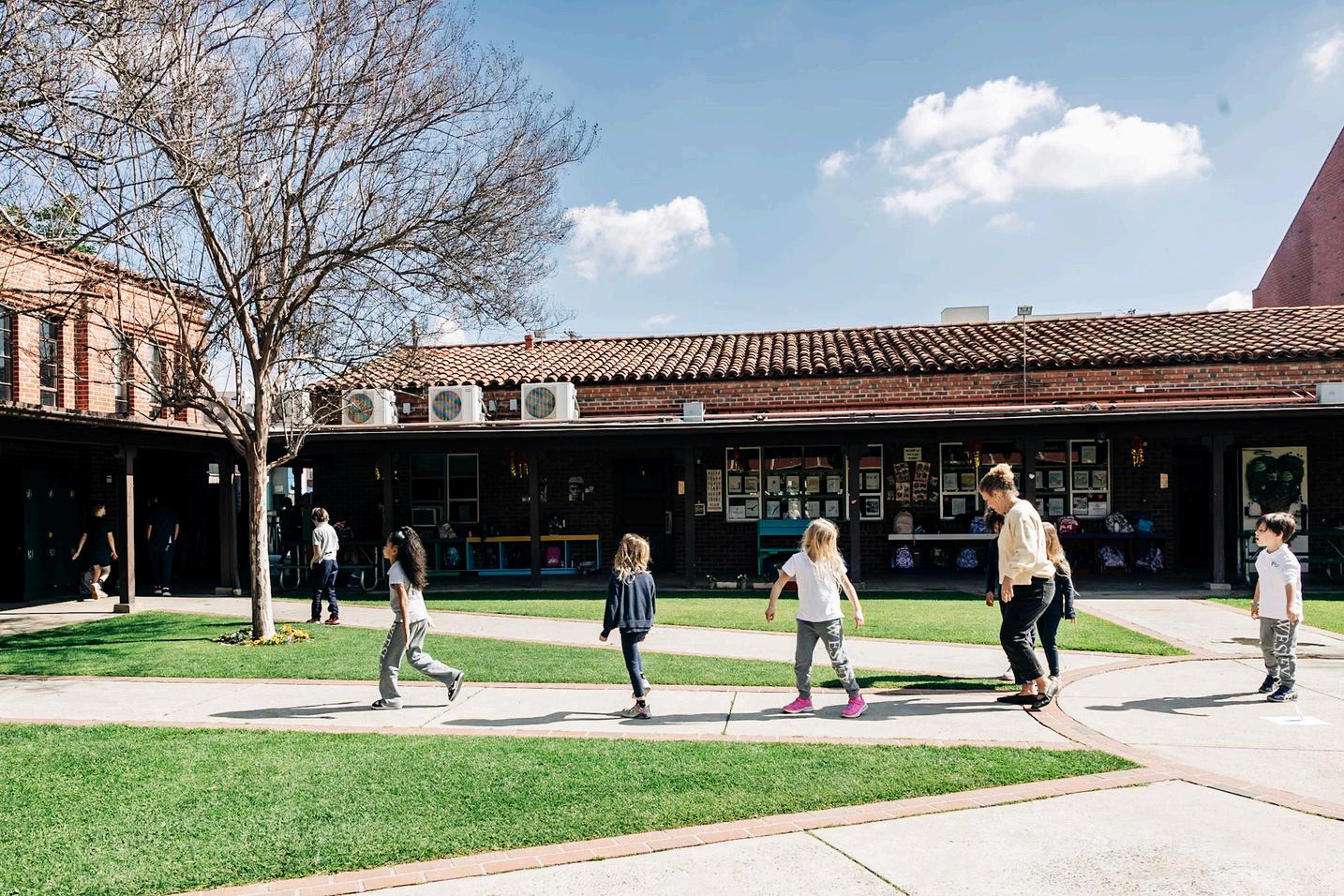
p p y y p y must park in the main parking lot, walk into campus, and sign out your child with the appropriate supervisor.
Other than during designated carpool times, access to campus at any other time of day will be through the main parking lot with entrance through the main gate. To pick up your child early, please sign them out through the main office.
To help carpool flow, please practice the following:
Keep the flow of traffic moving
Arrive at the designated dismissal time and during the next ten minutes thereafter, but not before
If your child isn’t ready for pickup, you may be asked to circle around through the line again
You should always remain in your car while in the carpool line
Once again, in order to ensure the safety of everyone in the parking lots, we ask that you do not use any form of cell phone or device communication while in the parking lots unless you are parked in a designated space. Please note that while we all enjoy our sense of community at Wesley, carpool line is not the time for conversations with personnel in the parking lot or with neighboring drivers. Please be alert and attentive to everything around you in the interests of protecting our children and staff.
Parents who choose to walk their children into school may park on Bakman and enter through the back gate. An adult must accompany all students who enter this way. Please do not allow your child to be released from a car on Bakman and go into school without an adult escort. Also, students may not be released on Tujunga or from a slot in the parking lot. In order to better provide for student safety, we do not recommend allowing even older students to walk to school from Starbucks. Drivers are advised to drop off children at the designated drop off location before parking and walking in themselves. Parking and walking with students is inherently dangerous.


If a child is to be picked up by someone other than the usual persons known to carpool supervisors and not possessing a name placard, the School must be notified in writing, in advance, via our designated pick up email address - pickup@wesleyschool.org. (Phone calls will not suffice). This message will be sent to all LEAP supervisors, the school receptionist, and to our security staff. You should also include your child’s teacher or advisor in the email. The designated person will be asked to provide identification upon arrival.
Please note: for supervision and safety purposes, students are not allowed to remain on the school grounds after school except in scheduled, supervised activities, athletics, or LEAP.
Middle school students may walk home or take other transportation as long as the parent or guardian has provided the school in advance with written or email permission to allow the student to leave campus without an accompanying adult.
General parking is in the main parking lot; however, we encourage parents/guardians to park on the neighboring streets whenever possible. Special parking instructions and restrictions for special events will be


methods of communication at Wesley:
The Wesley Weekly is the school’s weekly newsletter to parents. The Weekly, which arrives in your email inbox at 2pm every Sunday afternoon during the school year, includes a brief article from the Head of School or another leader, announcements, reminders, changes in scheduled events, health and safety procedures and updates, and other general information. Families are expected to be familiar with information communicated through the Wesley Weekly so that they can remain well informed about events and messaging in the community. The majority of the information found in each week’s Weekly can also be found on the Parent Portal of the website and the mobile app.
Faculty, staff, and administration at Wesley use email to communicate information on a regular basis about student progress, upcoming field trips, events, changes in the calendar, etc. Emails to school professionals at Wesley are expected to be returned within 48 business hours, but replies can often come sooner.
Veracross is an integrated web-based platform that allows parents to update their contact information, see information about their child(ren), review grades and assignments online, and communicate with teachers.

Administered by Room Parents and the PA. Parents are welcome to join their grade’s group for reminders, questions, and community.
Grade-Level WhatsApp Chats were created by the Wesley Parents' Association with the purpose of facilitating class connection and school reminders. These are meant to be positive, helpful tools for our school community. Please keep these guidelines in mind:
WhatsApp is meant to be a parent resource for school reminders and activities.
Complaints and concerns should be directed to the Wesley Administration: Room Parents will redirect complaints immediately. Please refer to the graphic below for our communication protocols. WhatsApp is not the appropriate place for parents to express concerns about staff members, curriculum, or other students/parents. We ask all parents to model the Wesley values of respect and inclusion by avoiding name calling, disparaging language, gossip, and so forth, just as we ask our students to do on any text or social media platform. Parents who demonstrate difficulty in adhering to the WhatsApp usage guidel

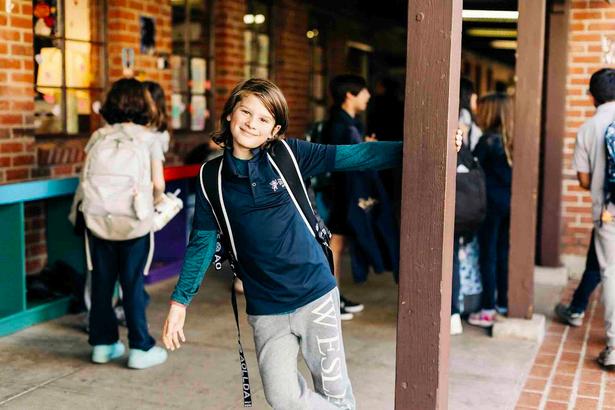


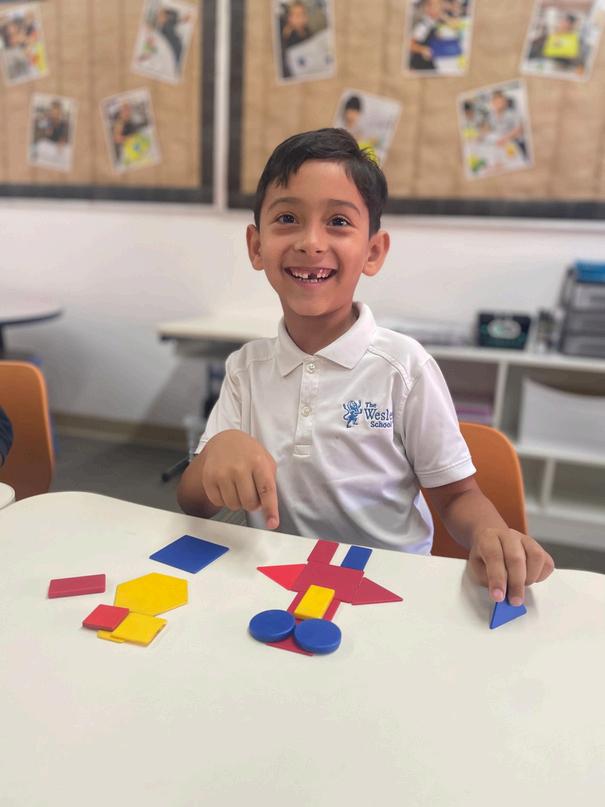
The school is deeply grateful for the contributions of the Parents’ Association. The Wesley Parents’ Association is dedicated to supporting the School in a wide variety of ways. All parents are members of the Parents’ Association, and their active support is encouraged. Dates for meetings are posted on the School website calendar. Please keep in mind that as vital components of our unique Wesley Community of Belonging, families are expected to be ambassadors of the school in word and action during all on and off campus school events, as well as in all forms of communication relevant to the Wesley community.
In order to maximize efficiency, our administration has established areas of influence for our team so that we can address questions and concerns as well as possible. The following graphic demonstrates the recommended sequence of events in seeking information about various topics and concerns on campus:
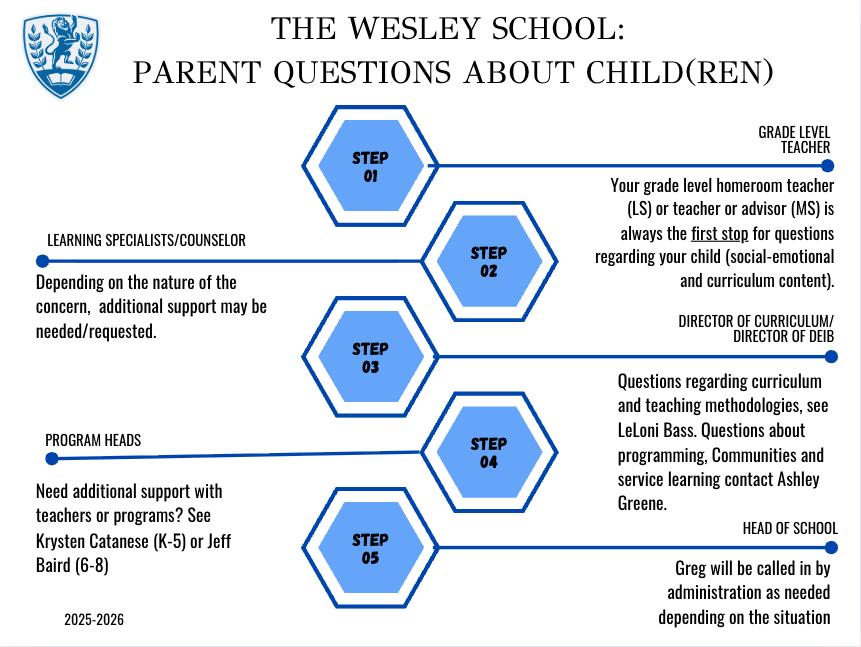
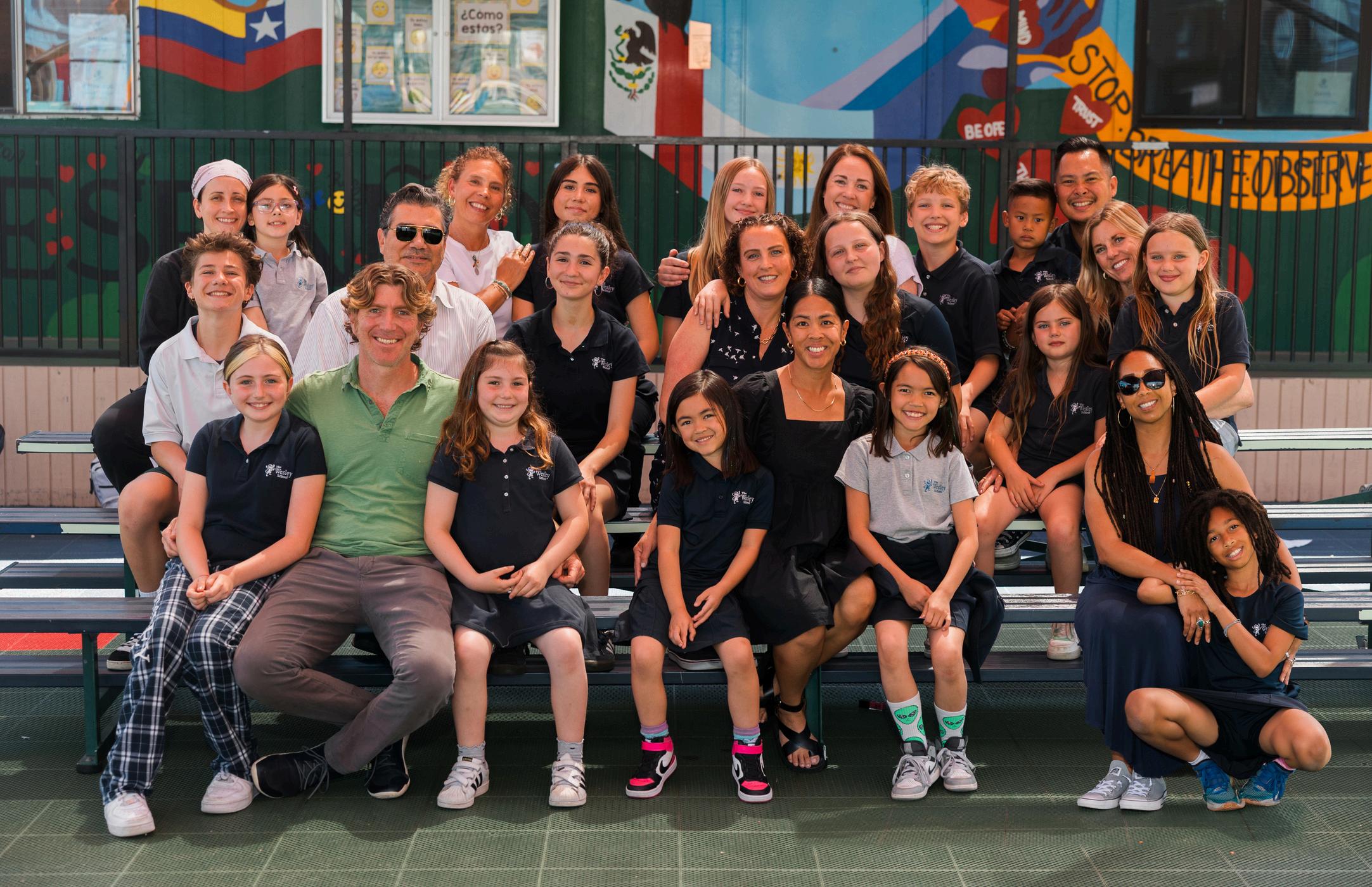


Wesley uniform policy contributes to the sense of belonging and togetherness for all students and enables students and families to focus their morning energy primarily on nutrition and wellness.
Purchased through Land’s End: Polos (short or long sleeve), oxford shirts, active tees, dresses - ALL with school logo
Bottoms
Purchased through Land’s End: Chinos (shorts or pants), sweatpants (flared or jogger with school logo), leggings (with school logo), skorts
Purchased through the Wesley Store: Plaid pajama pants (with school logo)
Middle school students can wear Dickies Original Work Pants (not cargo, jogger, or carpenter) in navy only.
Purchased through Land’s End: Fleece jackets, cardigans, crewneck sweatshirts, zip front sweatshirts, rain jackets - ALL with school logo
Purchased through the Wesley Store: Pullover hooded sweatshirts, quarter zip pullovers - ALL with school logo
Footwear
Function takes precedence over form - in the interest of safety and practicality, students must wear athletic lace up shoes. Children in grades K-2 may wear athletic shoes with velcro closures. Boots, Ugg type shoes/slippers, Crocs, flats, open-toed shoes, and sandals are not permitted.
Socks may be any color or design and may be ankle, crew, or knee-high length (not thigh-high) and should not display inappropriate language or images.


On athletic game days, student athletes are welcome to wear their game day uniforms to demonstrate their Lion pride.
On free dress days, during after-school sports practices or other activities, students are encouraged to express themselves through appropriate and comfortable clothing while maintaining a standard that supports a positive learning environment.
There may be specific dates and events, including overnight trips, when students will not be required to wear uniforms. These will be communicated well in advance.
To ensure consistency and inclusivity, the following guidelines apply to all students:
Clothing must provide adequate coverage and remain secure during typical school activities such as sitting, standing, and moving. Undergarments should not be visible.
Pants, shorts, and skirts should allow for full range of movement without needing adjustment and should have no tears above the knee.
Clothing may not display or promote language, symbols, or imagery that is violent, profane, explicit or discriminatory, or reflective of cultural appropriation.
Footwear must be school-safe (e.g no slippers, flip flops, etc).
Our goal is to create a community where all students feel comfortable and respected. If a student's clothing does not meet the above requirements, they will be asked to change and invited to have a conversation about the above guidelines – not as a punishment, but rather as a part of learning about self-expression in a shared learning environment.
In an instance where a student comes to campus wearing an incomplete or inappropriate uniform they must report to the main office and will be given a uniform from the uniform recycle store for temporary use. If a student can not find a suitable outfit, we will call home for someone to bring in the proper uniform.
Uniform Recycle Sales are sponsored by The Parents’ Association primarily as a means of recycling “gently used” school uniforms that students have outgrown. Uniforms in good condition may be dropped off in the School office at any time. Please make sure they have been recently laundered before dropping them off. Recycled uniforms can be purchased for $5 per item all year long. For special needs, contact the PA chairs by emailing wesleypa@wesleyschool.org.


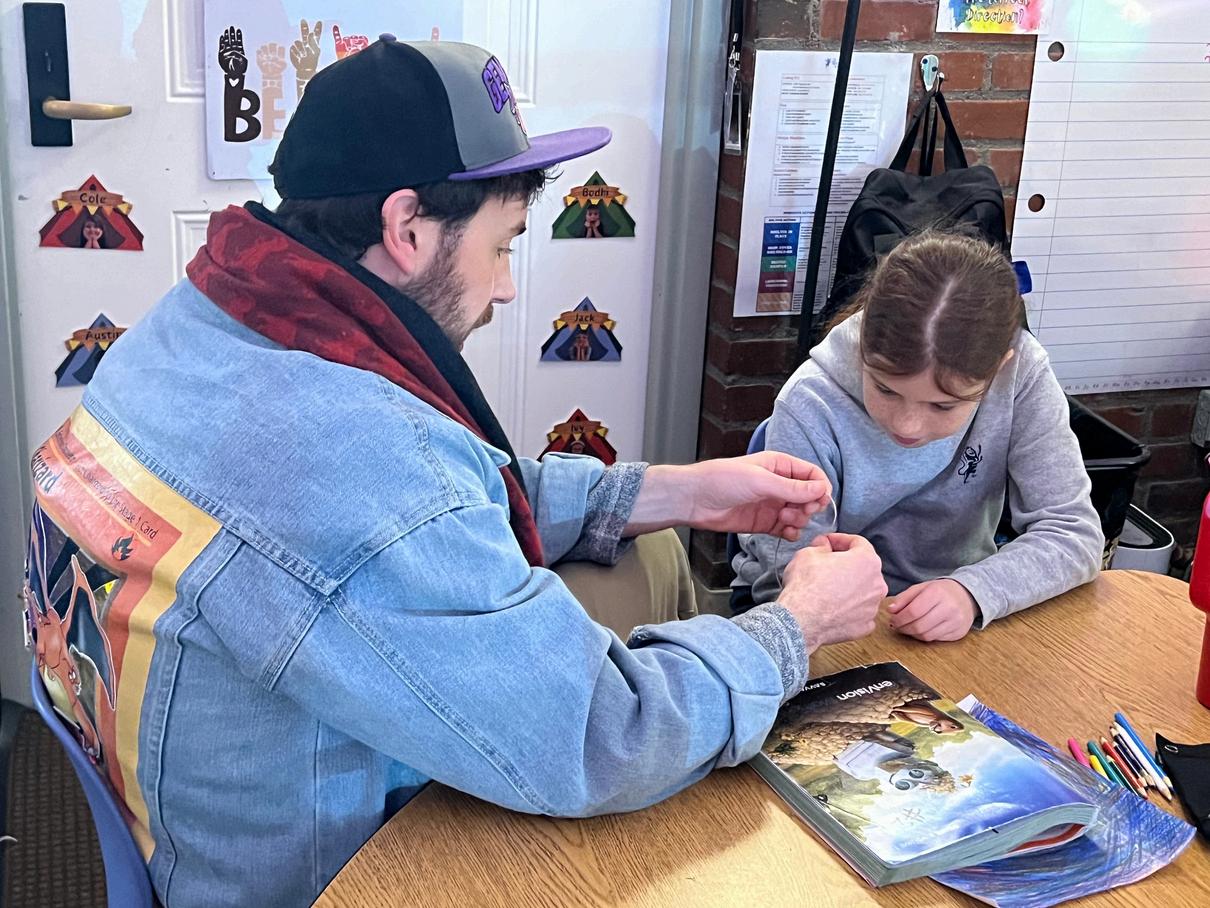
Should an emergency or disaster situation ever arise in our area while school is in session, be assured that the School has made thorough preparations to respond effectively.
Should a major incident or disaster occur during school hours, your child will be cared for at school. We have a detailed emergency preparedness program, which has been formulated in collaboration with Joffe Emergency Services, to respond to minor and major emergencies.
Your cooperation is necessary in any emergency. Please abide by the protocol below regarding your child(ren) at school after an emergency:
Do not telephone the School. Telephones may be inoperative and will not be monitored during an emergency. An emergency message will be sent to all families (via email, telephone, and text message) as soon as possible, with a situation update and instructions.
In the event of a serious earthquake or other emergency, students will be kept at a secured evacuation area on the field and/or in the social hall until they are picked up by an identified, responsible adult listed on your child’s emergency card. Students will only be released to parents and persons identified on your child’s emergency card. Please ensure that the School has up-to-date information regarding your child.

In the event of an emergency, information regarding pick up will be communicated to parents/caregivers. To allow a large volume of students to be released in a timely manner, please follow the emergency release instructions. STAY IN YOUR VEHICLE and follow the traffic directions given by staff members. Students will not be released to parents who are on foot, as pedestrian traffic will endanger the efficacy and safety of the entire process. There will be staff members to obtain your child’s name and grade, and the child will be sent to the release area for pick up.
You will be asked to sign a release form for your child.
We conduct a variety of emergency drills, including fire drills, on a monthly basis, including drop and cover, shelter-in-place, and lockdown drills. The fire alarm system is checked regularly. Fire and earthquake evacuations from classrooms are very similar. Our drills simulate the actions that should be taken during and after an actual emergency.
The Wesley School believes in a research-based, best practice approach to education that considers each child’s academic, social, emotional, and physical strengths and areas for growth. Students are encouraged to investigate, explore, and discover their creative potential and the world around them through a wide variety of experiences. We use children’s natural curiosity as the building block for a structured yet responsive curriculum that adjusts as children grow and develop as is ageappropriate. We emphasize process as much as product in order to instill a love of learning in a supportive environment We foster a safe environment that allows for conv rt children in understandi is on growth mindset.

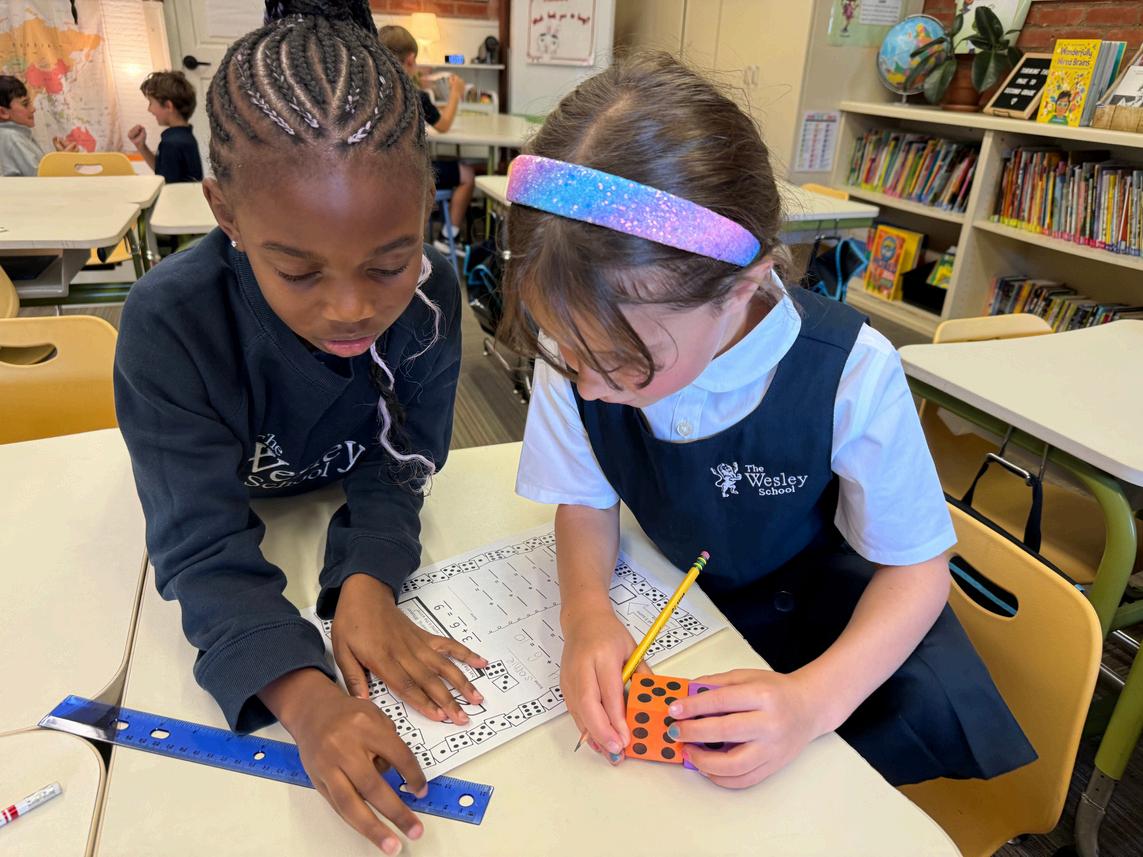
In Lower School classes, we offer experiences that encourage each child to explore and investigate the world and develop their own potential. Our integrated units of study grow out of a combination of student and teache interest and state and national standards. Because we know that competency fosters confidence, we maintain high, developmentally appropriate expectations for our students. Children are naturally curious and want to learn. We nurture this in a collaborative setting and through authentic and meaningful activities.
Children are expected and encouraged to be actively engaged in the learning process; and, our curriculum meets their individual needs while also asking each child to be part of the group and learn how to effectively collaborate. Every child engages in the academic subjects daily and in specialty classes: Spanish, music, P.E., and art, and are integrated throughout our curriculum. Art projects are often integrated into all curricular areas.


Middle school is a wonderful and dynamic time when students are increasingly aware of themselves in the world and are learning much about who they are and who they want to be. Our curriculum provides ample opportunity for deep, critical thinking about content in all areas while connecting those experiences with personal goals and insights as well as social implications. Teachers provide a range of ways to interact with and process new information, including presentations, papers, group and independent projects, plays, movie making, and other relevant creative endeavors. Wesley’s Middle School takes the social and emotional growth of these young adolescents very seriously and as such provides support and intentional conversations around the issues that matter to the students.
Wesley enables students to be stewards of their learning by providing a range of experiences and cultivating self-knowledge that yields selfadvocacy. Teachers provide necessary structures to build students’ organization and time management skills, so they can remain focused on their learning objectives. Teachers meet with students as needed to be sure they are on track with their work and understand their next steps.

Student progress is assessed and evaluated daily as part of our program. Assessment tools are used to help determine what children know and the depth of their understanding, to know where children are on a variety of benchmarks and to inform our customized teaching. All of our assessment tools are accessible, fair, and intended to be meaningful to students. We do not use letter grades in our Lower School.
le
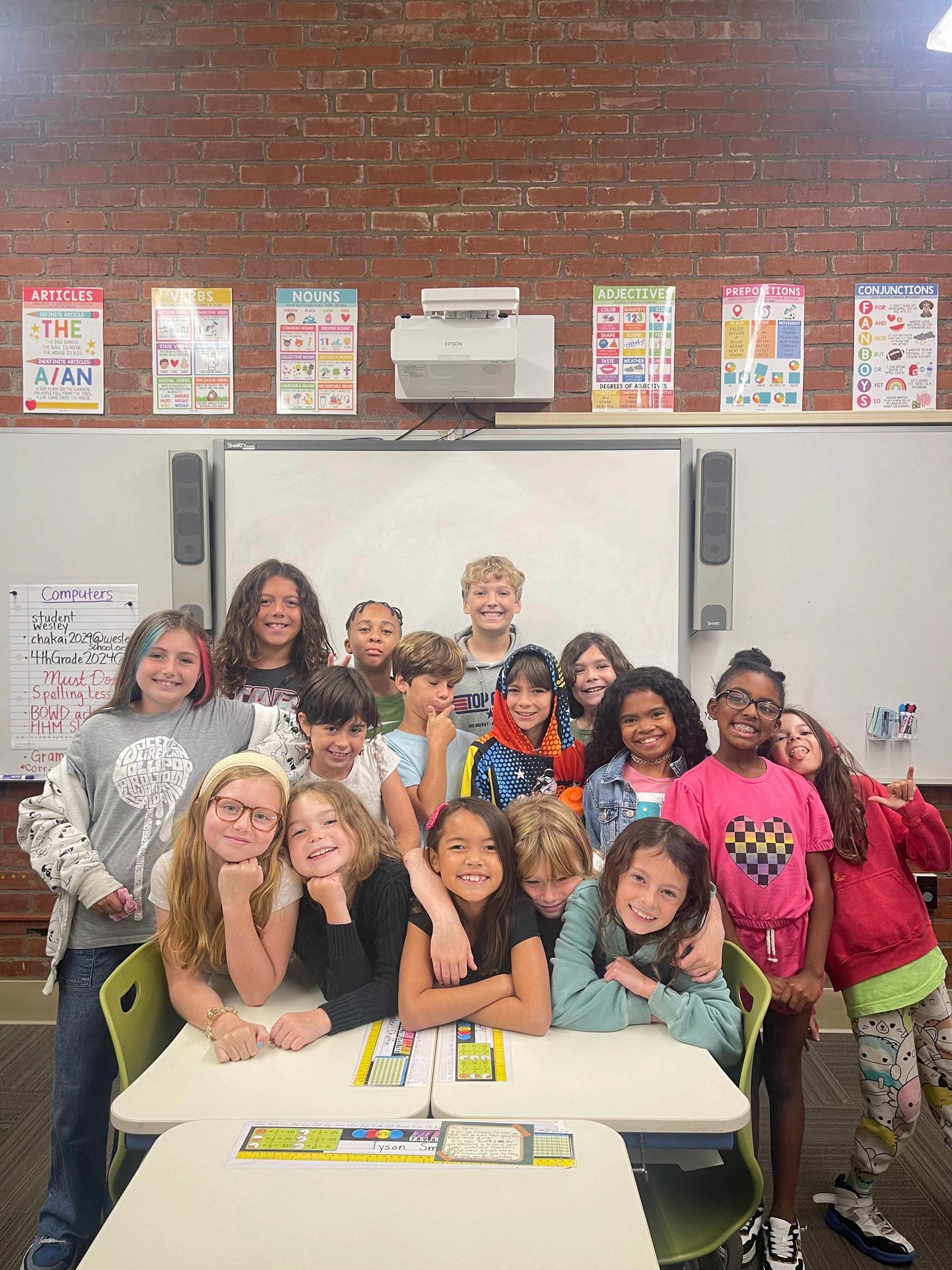
Authentic assessment, which allows students to demonstrate their learning in ways similar to that of experts in those fields of study, is the foundation of middle school assessment philosophy. Students use many avenues to show what they have learned beyond what they have memorized. Rubrics as well as some quiz or test-like assessments begin to be employed as students move into the upper grades in order for them to have a sense of how their work might be interpreted in a traditional high school setting. NWEA MAP tests (nationally normed exams) are administered twice annually in the fall and spring. These tests are adaptive, more accurately measuring students’ knowledge. Teachers are able to use the results immediately to inform their teaching and curriculum to meet individual needs. This process also ascertains that the curriculum is meeting and d
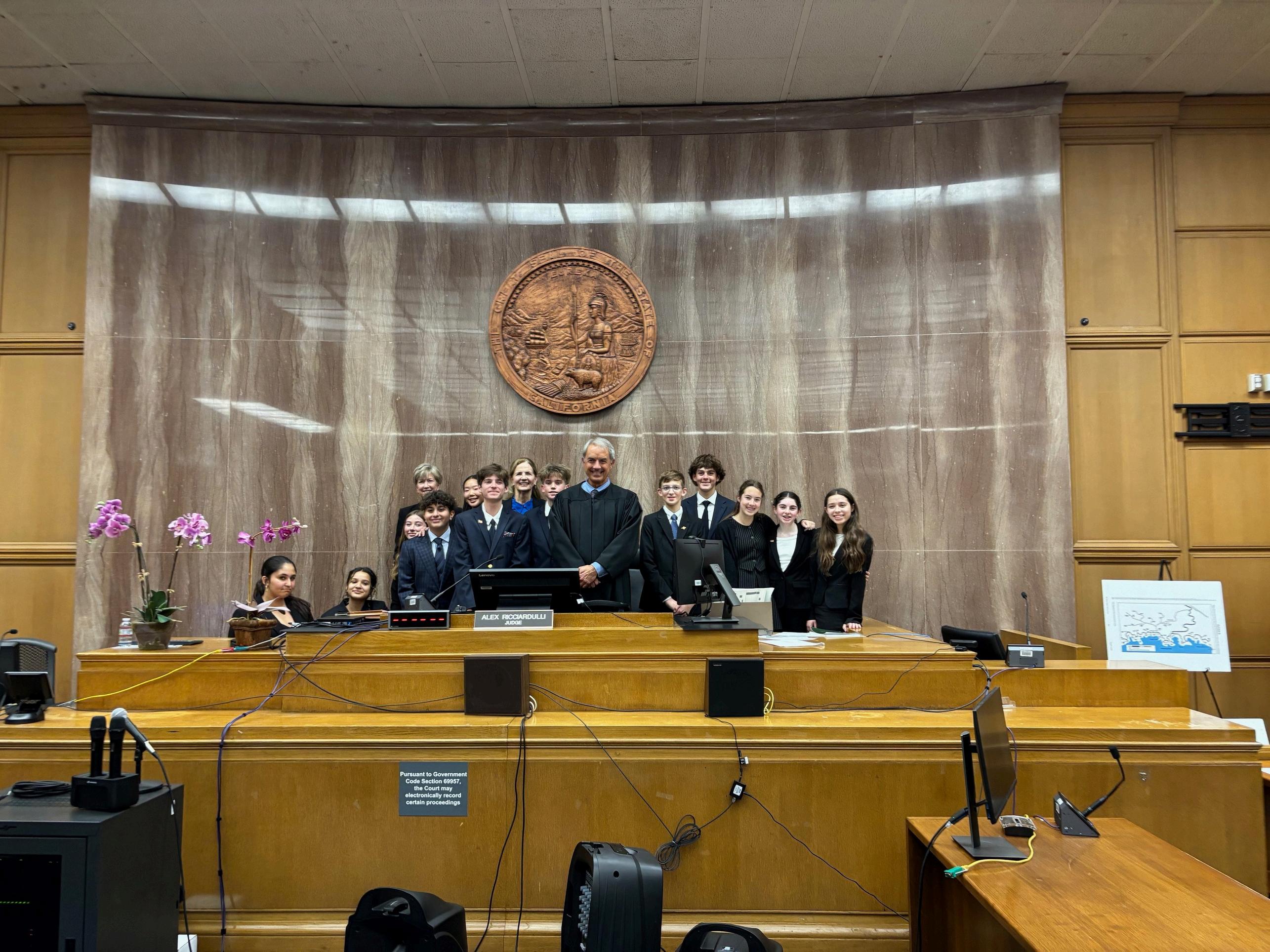


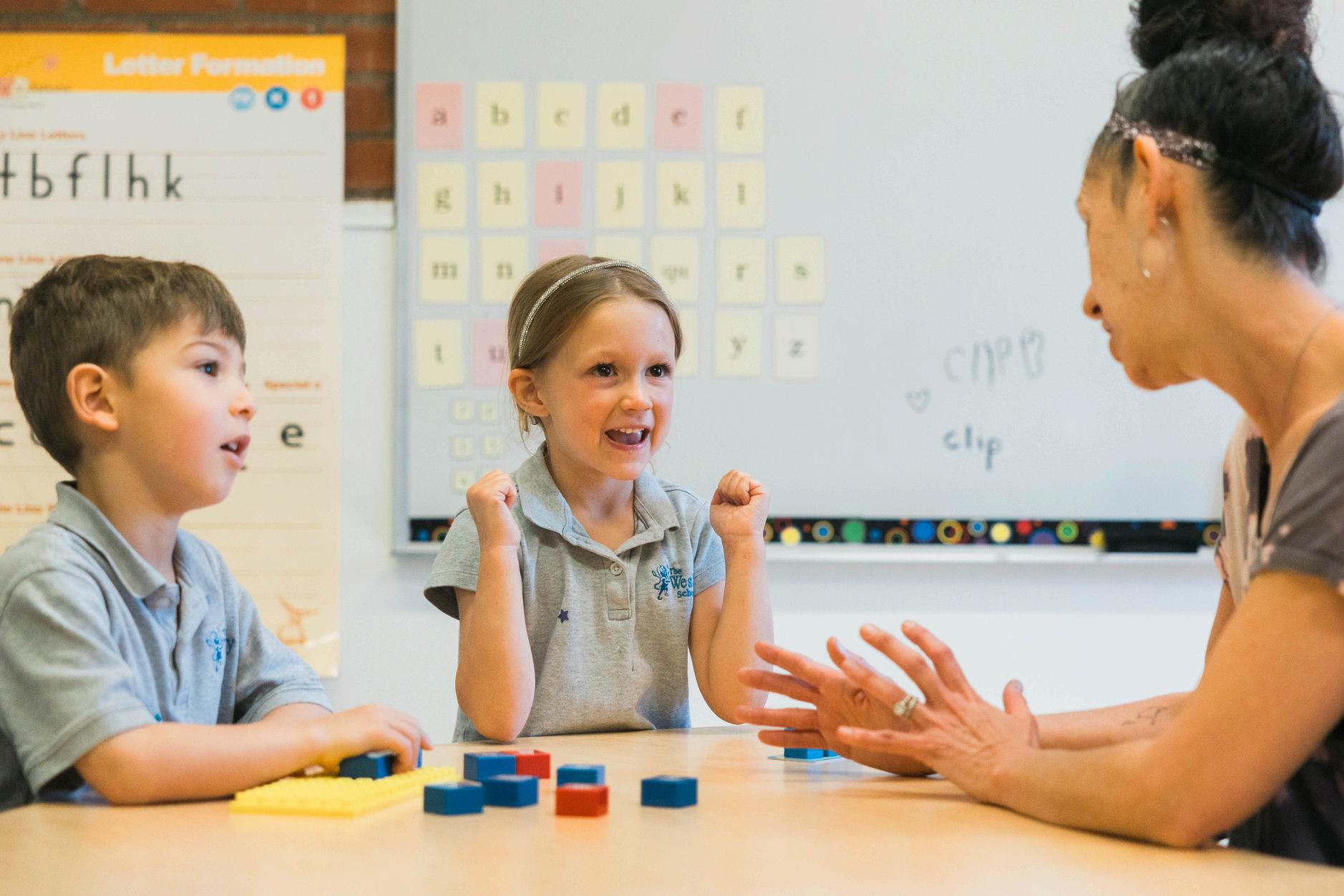
Our K 8 Learning Resource Specialists offer support to classroom teachers and students in the form of individual, small group work and evaluation. They serve on support teams of teachers and families that meet to support students’ needs.
It is important that your child’s teachers are aware of any learning differences your child may have. Maximizing your child’s learning experience is our goal. Any information you can share will allow greater understanding and more effective classroom experiences. This would include information about physical, emotional, social, and learning needs. Although we do not have specialized therapies offered in-house, we will work with you and the specialists of your choice to support your child as best we can.
If we observe any areas of your child’s development for which it would be beneficial to gather more information, our Learning Specialists will suggest further evaluation by a specialist such as an Occupational Therapist, Physical Therapist, Vision Therapist, Play Therapist, Psychologist, and/or Speech/Language Therapist. We expect families’ full cooperation in the effort to meet each child’s needs.

At The Wesley School, we are committed to the academic growth and personal development of each student. In partnership with families, we strive to support students in becoming confident, independent learners who meet their fullest academic potential.
All students and families have access to the Veracross Learning Management System, which provides real-time updates on academic performance, assignments, and teacher feedback. The school recommends and expects that families regularly monitor student progress through this platform. Our intention is that families and students proactively recognize academic trends and challenges before trimester report cards are issued. Grades should never come as a surprise; instead, they should reflect a shared understanding between student, family, and school of academic progress over time.
Each student who is in need of educational therapy or additional learning support must have those interventions scheduled during authorized school hours.
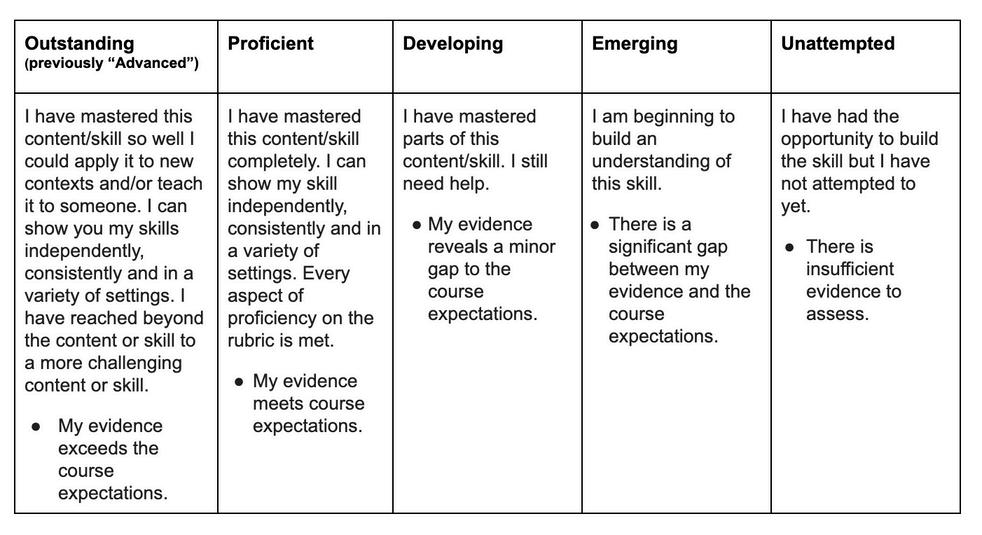
A+: 97-100
A: 93-96
A-: 90-92
B+: 87-89
B: 83-86
B-: 80-82
C+: 77-79
C: 73-76
C-: 70-72
D+: 67-69
D: 63-66
D-: 60-62
F: 59 or below



The Wesley School expects all students to maintain high standards of academic integrity in all of their school-based endeavors, both in and outside of the classroom. If students or families have any concerns regarding whether or not the use of any outside support may violate this, they should contact the child’s teacher, advisor, or any other relevant administrator. In the event that an instance of academic integrity or dishonesty arises, including, but not limited to, plagiarism, cheating, unauthorized collaboration, and more, the School will follow up with any necessary and appropriate behavioral interventions.
At The Wesley School, we are committed to fostering a learning environment that integrates innovative technologies responsibly and equitably to enhance teaching and learning experiences. Artificial Intelligence (AI) tools are leveraged to support creativity, critical thinking, and personalized learning, while maintaining the highest standards of data security, academic integrity, and equity. Our AI policy ensures that all stakeholders students, educators, and families understand the ethical and practical applications of AI in education.

Our approach to artificial intelligence centers on three guiding principles:
1.AI is a tool to enhance human creativity but does not replace human thought, voice, emotion, and relationships.
2.AI is fallible, biased, and inconsistent, and therefore requires critical scrutiny in all aspects of its use.
3.AI is an opportunity for students to act with integrity and embrace their educational courage.
Given that generative artificial intelligence (AI), such as ChatGPT, has become an integral tool in most academic and career settings, students can expect that teachers will provide opportunities and encouragement to use AI within strict guidelines. Students acknowledge that in using AI as a tool to support learning, they are prohibited from using artificial intelligence tools as a shortcut to learning or a means to bypass or produce work without genuine understanding.
Students are prohibited from using artificial tools beyond what individual teachers expressly permit. Deviations from the teachers’ guidelines will be considered a violation of academic integrity. If a teacher has not expressly permitted the use of AI, then by default students are prohibited from using any and all Artificial Intelligence tools, large language model (LLM) tools, or essay writing services to guide, brainstorm, draft, create, edit, or revise work related to any assessment or assignment, including written assessments, projects, and performance tasks.
As with any resource, Wesley expects students to cite their sources and note the use of resources when completing assignments. If a student has used AI according to the teacher’s directions they must still cite any and all
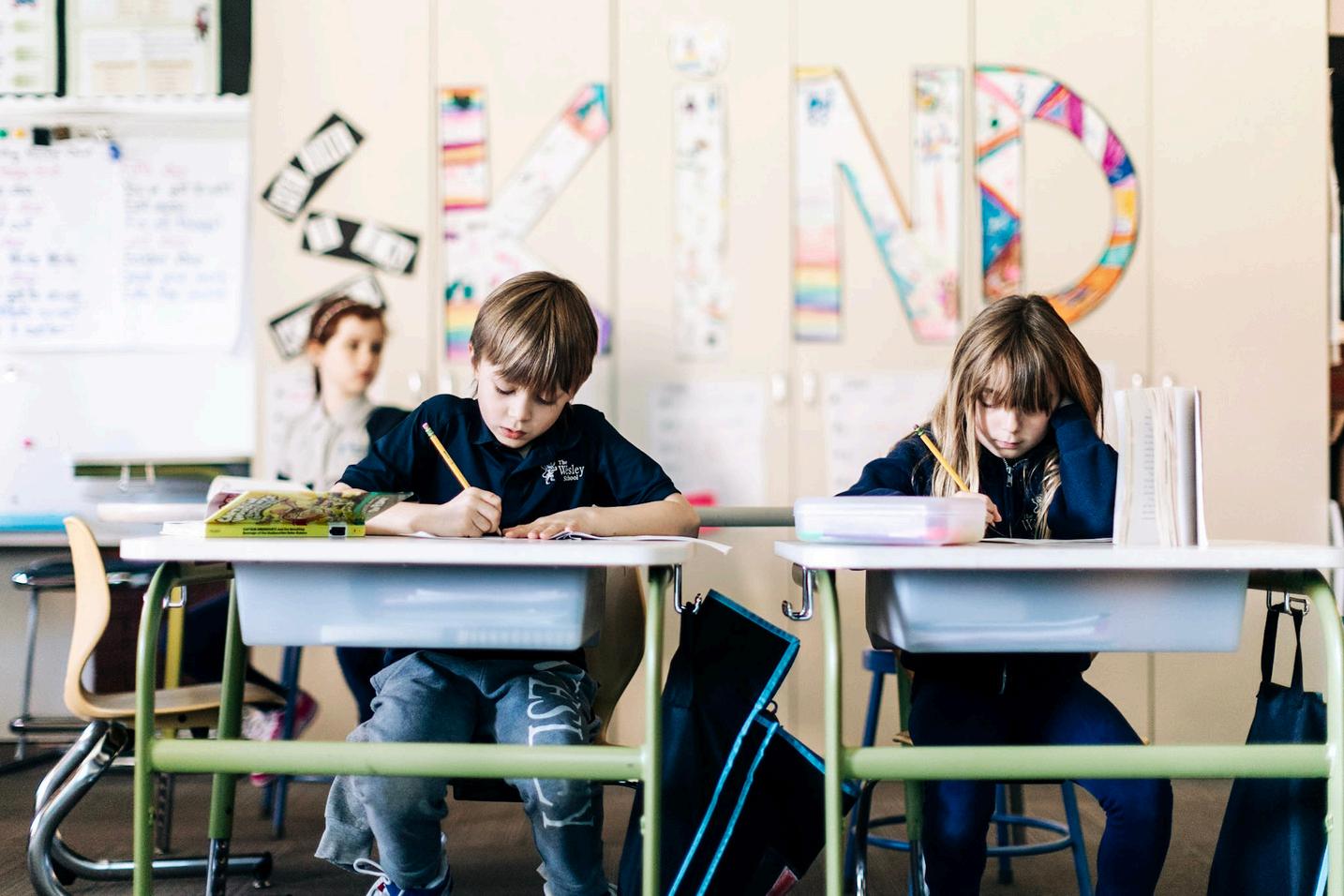

Students at Wesley enjoy the support of gifted and dedicated learning support specialists, a school counselor, teachers, advisors, coaches, and administrators. Our goal is that each child at Wesley feels that they have school adults in whom they have confidence and trust. This support takes the form of specific learning guidance in terms of learning styles and interventions, counseling for social situations and emotional well-being, and structured executive functioning coaching on the part of teachers and advisors. Our hope is that this support structure will provide each student with the best possible opportunity for success. On those occasions when individual students find more consistent difficulty, their support team of teachers and in some cases administrators will develop action plans and partner with the student and their family in order to enact them. As our students grow older, we also expect them to grow into the understanding of their own accountability and agency for their success.
At Wesley, the Counseling Department is dedicated to supporting the mental health, social-emotional growth, and overall well-being of every student. The counselor partners with students, families, teachers, and administrators to nurture the whole child, ensuring that each student feels seen, heard, and supported. Through classroom lessons, individual support, small group work, and school-wide initiatives, the Counseling Department plays a vital role in fostering a safe, inclusive, and caring school community aligned with Wesley’s mission, vision, and values.
All students in 4th through 8th grades are encouraged to participate in the after-school athletics program, which generally entails regular participation in practices twice a week and games after school.
Eligibility: A student must maintain an academic average of 77% or above (grades 6-8 only), with no grades of D or F, to participate in after-school thleti I ll e o im o l i the demi e d o e ll


Early dismissal: On occasion, students on after-school athletics teams might be dismissed for games before the school day has ended. This does not excuse students from content covered in class, from turning in assignments, or completing homework assigned that day. Students, especially in middle school, should be aware that they will be dismissed early and take appropriate steps to speak with their teachers to determine how and when to turn work in.
As Wesley athletes, our students are ambassadors for the School. We work carefully with them to ensure that they are aware of the expectations for participation and how we want them to represent themselves and our t Athl t t d t l th th f ll
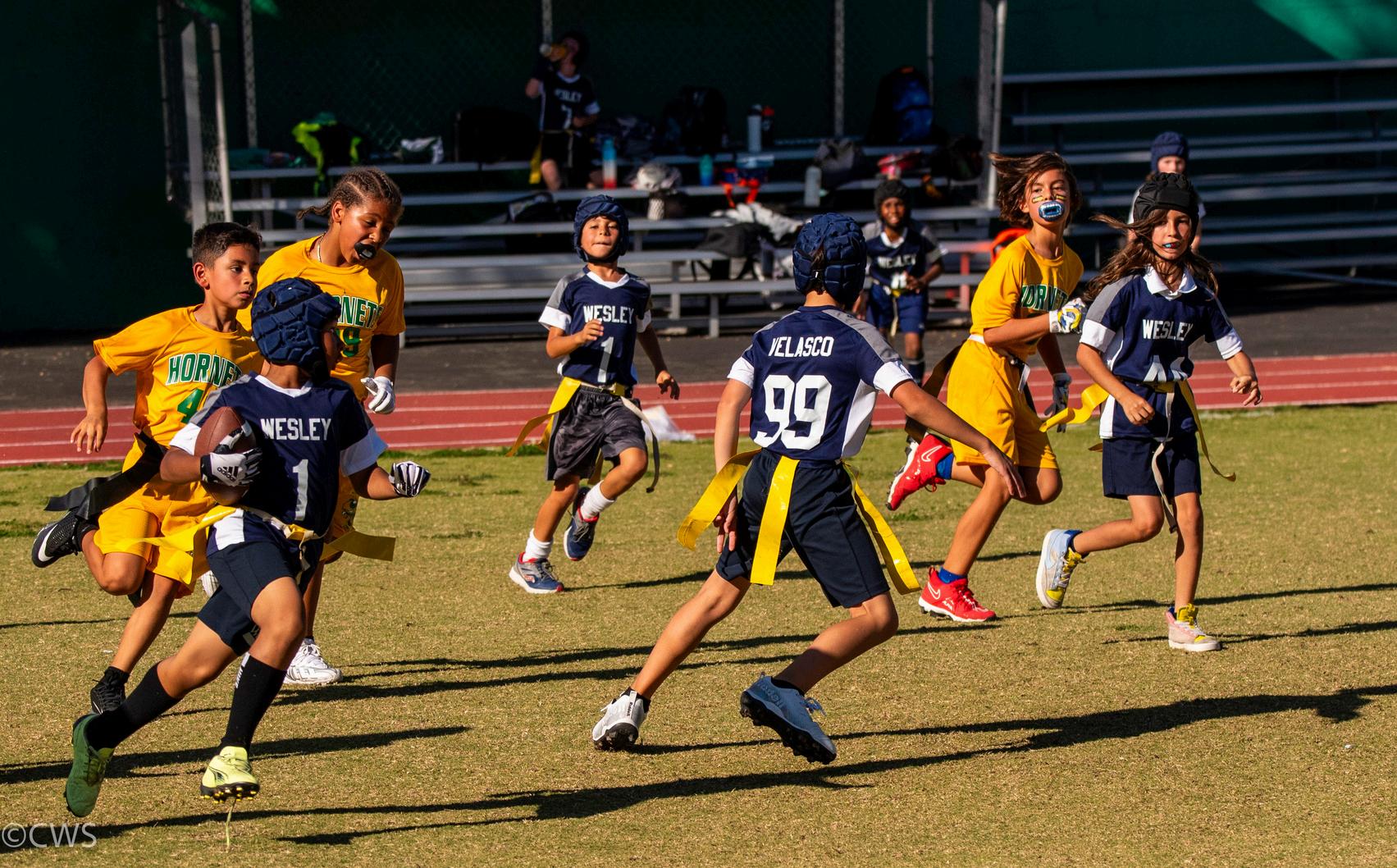
achievement is the amount of time children (9-13 year olds) devote to pleasure reading. In all grades we ask that your child read or are read to every night.
Additionally, students in Kindergarten and first grade often have homework as it relates to something they are doing in class. This might be a math game or a reading folder to bring home.
Beginning in the second through fifth grades, students have home practice to expand upon work being done in class. This may consist of reading and math as well as some writing, spelling, science, or social studies. This work should be completed with little family assistance, although you may need to support your children in being responsible about completing and handing in their homework at the upper elementary stage.

All homework is developmentally appropriate and teachers differentiate homework for individual learners within the scope of grade-level expectations, so that every student feels challenged and engaged. Students should plan to read every night in addition to any homework assigned. This may change as deadlines approach, and there may be lulls in the volume of homework as well. Again, building up study habits is the main priority for the Lower School. As always, we will continue to support all students as they develop and hone these critical skills. Never hesitate to reach out to your Lead Teacher for help.
Homework in the middle grades helps students to practice developing skills and enhances their educational growth. It also gives teachers the chance to assess levels of student understanding and determine when needs for extra help arise. Families can partner with their child’s teachers by providing encouragement and good study conditions, but it is the responsibility of the student to complete any work brought home.
In middle school, the time frames for homework will vary depending on grade level, discipline, and the unit of study. Homework may also range from short-term assignments to longer-term assignments that require careful planning and organization over an extended period of time. If a student has questions about their homework or needs guidance, their first step should be to directly contact their teacher or attend their office hours. If they need additional support, they may contact their advisor or Mr. Baird.
Assessments are important for both teachers and students to know what students are learning and where they need to go next. Teachers and administrators use a variety of assessments in order to gather a clearer picture of what students are learning. Most assessments fall into one of two categories: formative and summative.
Formative assessment is “ongoing assessment that provides information about progress, misunderstandings, need for clarification, and so forth” (Driscoll and Wood, 2007, p. 86) normally provided by the teacher and/or the curriculum throughout the lessons/units. Examples of formative assessments include: quizzes, observations during discussion, drawings, homework, classwork and exit tickets. These types of ongoing assessments occur at all grade levels.

Summative assessment is “conducted after a program has been in operation for a while, or at its conclusion, to make judgments about its quality or worth compared to previously defined standards for performance” (Palomba & Banta, 1999, p. 7-8). These assessments are conducted by teachers at all grade levels and are used to validate or “check” the information gathered from the formative assessments. Examples of summative assessments include end of unit/chapter tests, individual/group projects, and end of year/trimester assessments

We use NWEA/MAP online adaptive testing for students in 5th through 8th grade in order to assess individual, grade-level, and overall school academic progress.
The school uses the information provided by these test results for our students as a tool to measure performance in a broad range of academic areas. We consider both aggregate and individual results, and we track trends from year to year and across grade levels, enabling us to identify curricular areas that need to be strengthened as well as areas of growth for individual students. Results also indicate our areas of strength and our achievement level relative to other independent schools. MAP test results are one data point of several that we carefully consider in our ongoing curricular review, professional development for teachers, and the feedback loop from students.
MAP Growth focuses on your child(ren)'s individual growth over time.
The data collected from these adaptive tests allows teachers to identify target skill development taught in previous and current grades while getting a peek at student understanding of material to come later in the year. It is important to note that MAP testing is not a standardized test or a summative, end-of-trimester content test. These tests do not compare one student's understanding of material in relation to the same knowledge acquired by another student. Instead, MAP assesses the individual student’s skill development based on grade level norms and their ability to apply current knowledge to new knowledge under these specific testing conditions.
Students do not receive the same questions over the course of their sessions, unlike traditional tests. MAP testing is not an all-inclusive picture of Wesley students' abilities or potential. MAP results are meant to provide a holistic picture of spiral skill development. This information is used alongside daily formal and informal assessments, observations, assignments, and projects/activities to determine the success and growth of each student’s development. Classroom based assessments are tailored to material students have been taught in a given time period. These classroom assessments assess the students’ depth of knowledge through memorization, analysis and synthesis of that information.
MAP l d f ral that we carefully consider in development for teachers, and es are not part of the transcript s next school/high school by the




At Wesley, we believe that helping others helps us grow, too. Our Middle School Service Learning Program gives students the chance to make a real impact in their communities while learning about the world around them and about themselves.
What's the Difference Between Service Learning and Community Service?
Community Service is helping others through volunteering (like cleaning up campus or helping at a food bank).
Service Learning is a deeper kind of service that includes reflecting on one ’ s experience and connecting it to what they are learning in school.
Both types of service count toward yearly service requirements, but students are encouraged to do at least one service learning project each year that includes:
Planning ahead
A reflection activity that will be provided for them
A connection to a real-world issue
Yearly Service Learning and Community Service Requirement:
All students in grades 6 - 8 need to complete 8 hours of service each trimester for a total of 24 hours per year*
One service learning project
Students may start during the summer before the school year, and finish anytime during the year
If students don’t finish 8 hours each trimester, the hours will carry over— but they must be caught up before students may participate in school retreats or end-of-year activities
Completion of service hours is also a graduation requirement
*A surplus of community se
If n p n

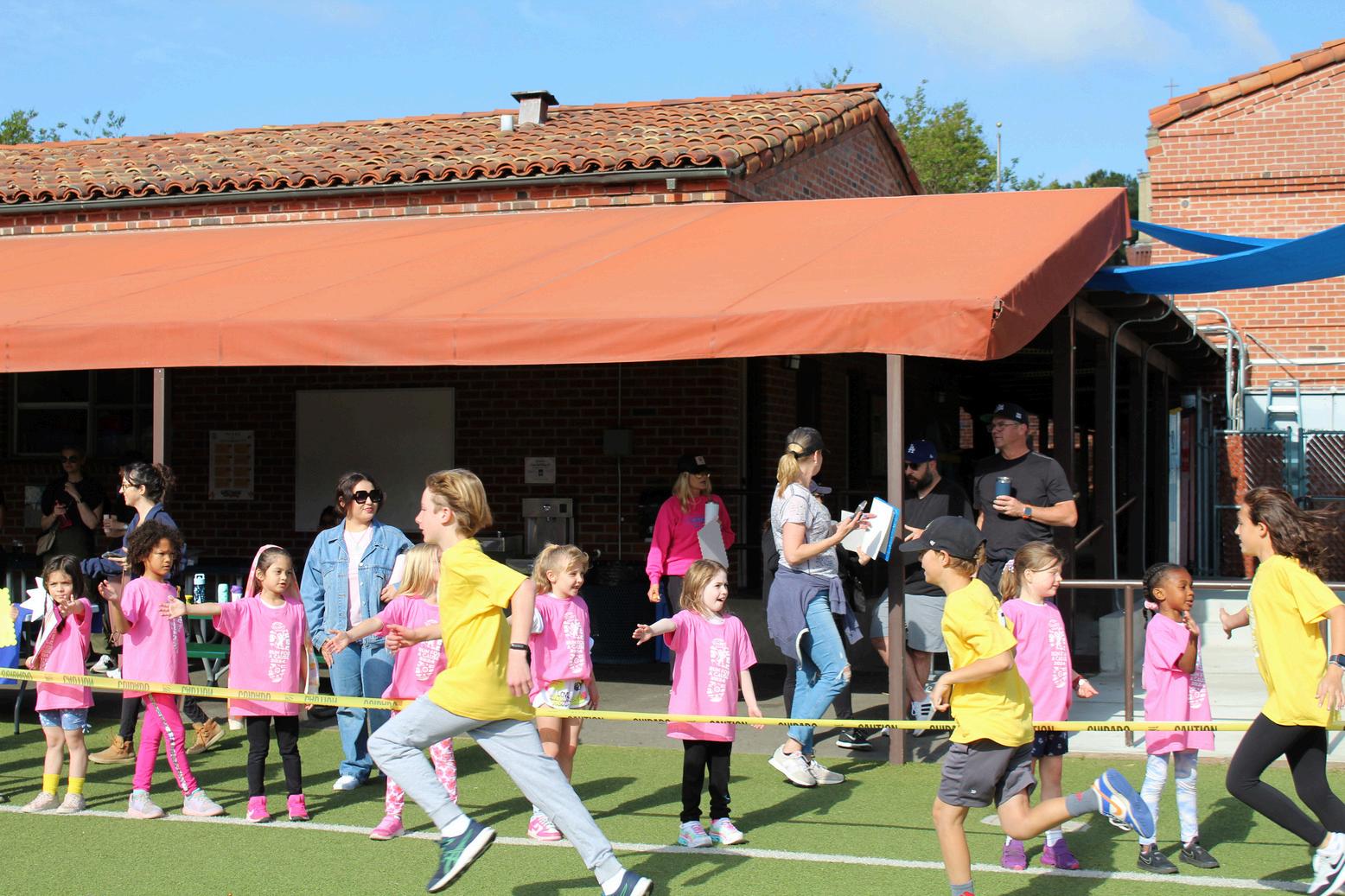

Recipients of all awards are announced in special Award Communities and Assemblies. Parents of award-winning students are notified and encouraged to attend these ceremonies. Students achieving Academic Honor Roll or the Dean’s List are recognized each trimester, and academic awards for the year are given during a special awards program during the last week of school. Athletic awards ceremonies are held each trimester to recognize the athletes of each particular season.
Academic Honor Roll and Dean’s List honors recognize students for outstanding academic achievement each trimester. To qualify for Honor Roll, students must earn an academic average of 90% or above and must not have any grade lower than a B-. Dean’s List recognizes students who earn an academic average of 95% or above.
At the conclusion of each school year, a select number of End of Year Awards are also awarded to middle school students, some of which are holistic based on a student’s contributions to the wider community, and others presented by specific grade-level teachers.
Overnight field trips and experiential learning opportunities are a signature part of the Wesley middle school experience, with overnights beginning in the fall of sixth grade and continuing through to our eighth graders’ spring trip to London. Our students’ safety, wellbeing, and ability to take advantage of the learning experiences provided to them are always paramount when taking students off-campus, so these expectations are designed to ensure there is clarity about how students represent our campus, whether we ’ re at a museum in Los Angeles or another country entirely.
All school rules, policies, and expectations remain in place for the duration of any off-campus trips, including all language in the Student/Family Handbook and the Community Expectations outlined below. All students on field trips or experiential learning programs must cooperate and comply fully with all directions and instructions of the supervisory personnel in charge of the trip, including both Wesley chaperones and other staff supporting the trip through the organizations that we partner with. Failure to do so may result in students being immediately dismissed from a trip, requiring family members to pick them up, and/or the loss of future field trips or off-campus opportunities as part of The Wesley School program.

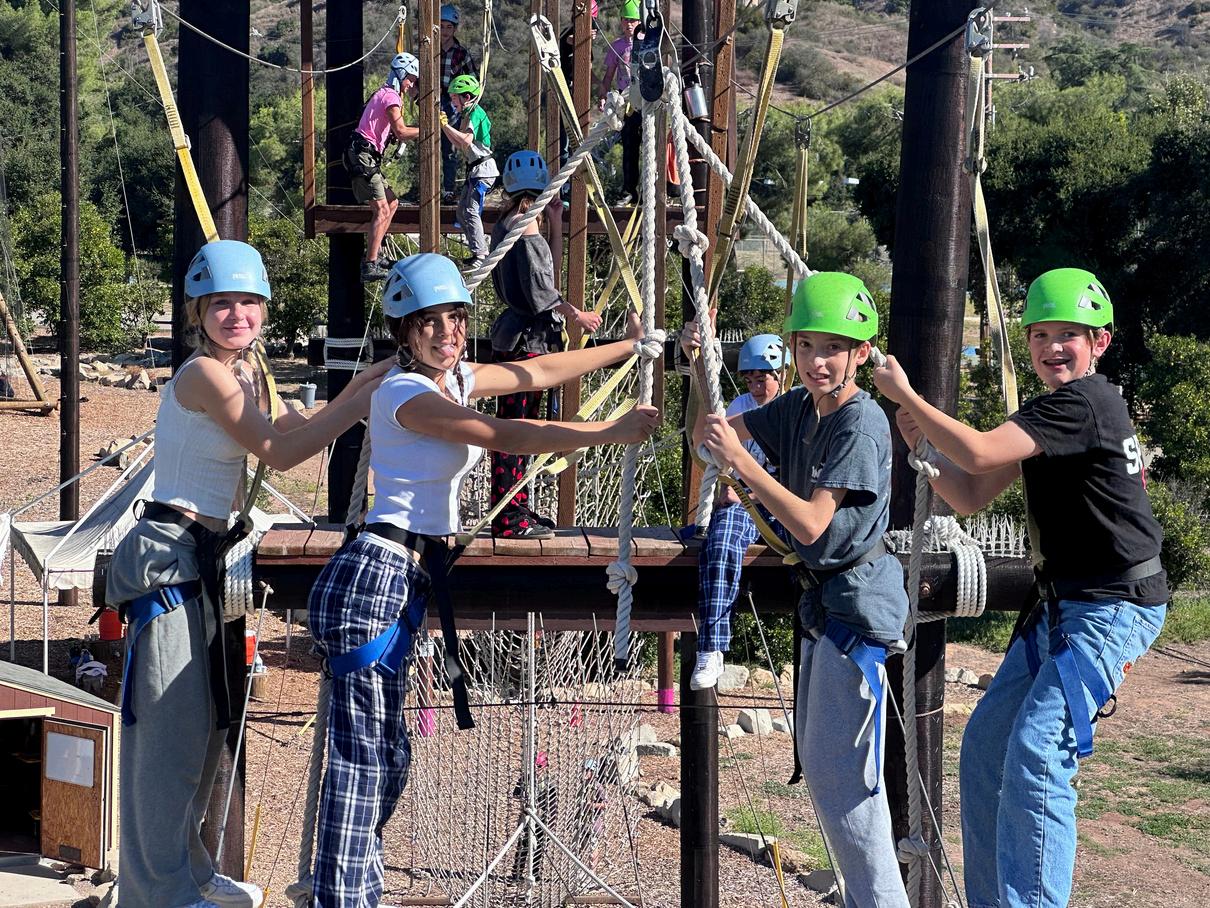
These expectations are designed to shape what it means to participate in the community of belonging that is experienced by all constituents of Wesley. They require us to hold these values in mind when engaging with all members of our Wesley family, including students, faculty, staff, caregivers and friends of the School. Students learn and practice these expectations, and we also ask that as adults we model the same community behaviors as well.
At Wesley, we deeply understand the whole-child: head, hand, and heart. Our students are actively constructing an understanding of their world (Piaget, Vygotsky, Dewey), who they are in it and how they want to help shape it. While we hold all children to high expectations, we must also hold their development cognitive, affective, and social in the front of mind when supporting them through their growth and learning, including mistakes. We view the lower and middle school years as an ideal opportunity for children to learn how to make good decisions for themselves and for each other, rather than merely to comply with adults’ expectations for them.

disputes are grounded in restorative principles: working together to amend trespasses, to repair harms, and to improve relational trust and integrity. Context is always taken into consideration regarding how a conflict arose, how actions might have been interpreted or misinterpreted, how these choices affected someone else, and how the intentions of one ’ s words or actions differed from their impacts. We try to help children articulate a clear pathway for the resolution of a dispute, including but not limited to identifying what each child needs from the other, establishing concrete commitments to "showing up " for each other as better friends, and more effective strategies for conflict resolution should a similar circumstance arise in the future. The younger children are scaffolded and supported through these processes to add to their Social and Emotional Learning (SEL) and mindfulness toolkit. Older students learn to internalize these mediation steps and processes and use them more and more independently when working through any relational challenges. Very simply, we aim to define and then to consistently practice how we want to “be” with each other throughout our shared experience at Wesley.
Even with this support, we expect infrequent occasions when a student's actions either threatens the physical safety of other children, or substantially and/or repeatedly interrupts their learning. Because the safety and active inclusivity of our school community depends upon the protection of every child's basic rights not only to physical safety and security, but also to the integrity of their learning experience at school — the administration reserves the right to make corrective decisions on a caseby-case and individually responsive basis. In such an event, a strategy will be constructed to ensure that the child has adequate opportunity to reflect and to learn, rather than merely to experience punitive or exclusionary consequences for actions that may themselves have been harmful or alienating to others. We want children to be held accountable in meaningful ways that foster learning and growth.

It is absolutely crucial that children hear similar messages about their actions both at school and at home. Therefore we rely on our partnership with parents to develop that coherence: to support each other’s learning about effective strategies to support your children's SEL needs, challenges, and goals; to share important developments that will help us to support each other’s efforts; and to understand from the outset that our common goal is the healthy development of “the whole child.”
All Wesley students are expected to comport themselves according to specific standards. Citizenship and belonging based in a strong sense of respect, acceptance, and kindness toward all, is the standard expectation for all Wesley community members; the reward for this positive “ way of being” is a caring, supportive school community where every student feels safe and experiences a sense of belonging every day. It is also important to note that we mindfully establish “brave spaces ” in which students learn that making mistakes is expected, and that the manner in which our community members use learned language to repair relationships and to share accountability is at the heart of our commitment to each other.
With that said, we understand that occasional indiscretions will occur, and there may be consequences for these choices and actions. Parents will be notified if this behavior becomes habitual, and it may also result in a behavioral plan for a given individual. There are also unfortunate incidents in which an individual indiscretion is significant enough on its own to merit more serious consequences. In all cases the administration and Head of School will carefully consider the needs of the individual child and the community, reserving the right to implement whatever action is necessary in the interests of all, including the potential for student or family removal from the school community.
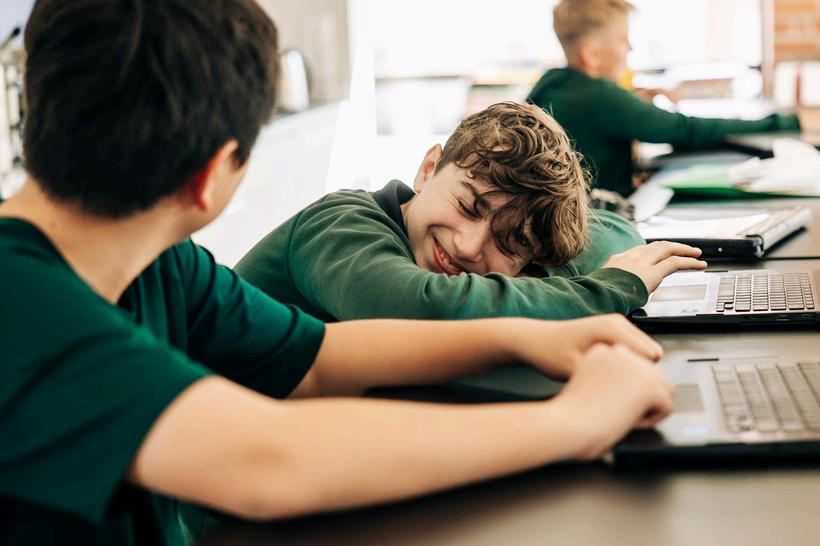
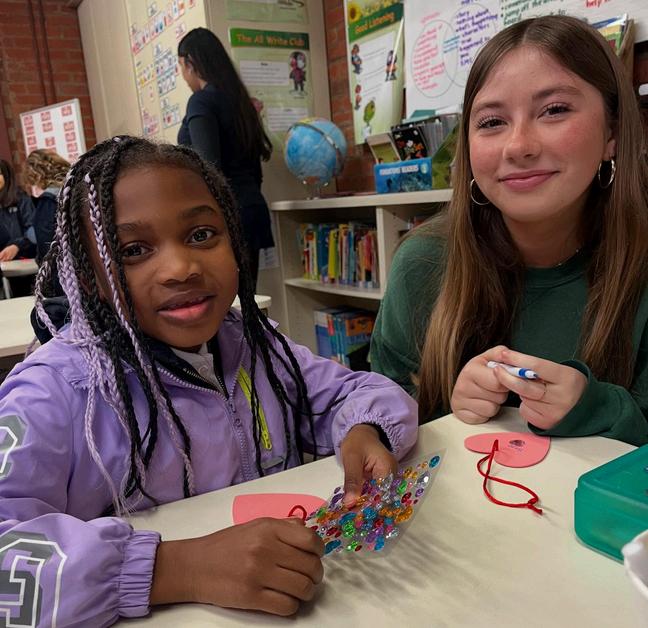



Behavior that involves negative, inappropriate, unwanted actions
Involves a pattern of behavior repeated over time
Involves an imbalance of power
Bullying is not the same as teasing, joking, or occasional meanness. Bullying is peer abuse that should not be tolerated under any circumstances. It might be hard to tell the difference between playful teasing and bullying. Teasing usually involves two or more friends who act together in a way that seems fun to all the people involved. Often they tease each other equally because there is a shared level of trust between them, but it does not devolve to physical or emotional abuse. Students can sometimes be mean to each other and this is part of our approach with SEL to ensure students have the tools they need to communicate and get support if they need it, especially during unstructured activities, like recess or free play time.
If a student (or someone they know) is being harassed or bullied based upon their race, color, sex, religion, national origin, age, sexual orientation, gender identity, or physical or mental difference, parents/guardians/stude e administration. This is ty agreements/expectation

At The Wesley School, we are committed to building a community of belonging where every student feels seen, respected, and safe. A bias incident is –targeting someone base p y ir social identity. This could include, race, ethnicity, religion, gender, family background, ability, or other personal characteristics.
Bias incidents can be intentional or unintentional, but either way they can cause harm. These actions go against our school’s core values of kindness, empathy, and inclusion.
If a student experiences or witnesses a bias incident, we encourage them to talk to a trusted adult, such as the lead teacher, school counselor, or administrator.

At Wesley, we will continue to look at any situation from a 360-degree perspective and address it in a restorative manner, including educating our students on these topics in partnership with you, and in developmentally appropriate ways, as is the Wesley Way. Any students who have potentially deviated from the How We Play community agreement in ways that require support beyond a child's classroom teachers will go through the School's disciplinary process. Depending upon the situation, this may result in any of the following:
A full investigation and review of the matter, including speaking with any students or employees involved, to get a thorough understanding of what transpired and then a determination of the outcome by the School’s administration.
Requiring the student(s) who committed harm to take part in designated actions or work that will support repairing the harm and students’ learning from the experience, including mediation and restorative approaches.
If the student(s) continues subsequent harm, the School will develop student-specific behavioral plans or agreements designed to ensure the student does not cause further harm to their peers or the community, which will be presented to students and their families. This may also include the School requiring that an offending student receive counseling as a condition for continued enrollment.
In the event of any significant infractions that deeply impact the wellbeing of the School or community or involve the law the issue will be

The health and safety of our students are paramount. In the event of a health emergency or the need for medication administration, the school will follow the protocols outlined below, consistent with the preferences and authorizations provided by parents/guardians on the Consent for Treatment.
If your child experiences a minor injury or illness on campus, they will receive immediate attention from our health aide. This may include the application of ice packs, first aid cream, or Band-Aids as appropriate.
Please note: Our health aide is not able to diagnose illnesses or injuries. If your child experiences a severe injury or a head injury, they will be immediately assessed by our health aide, and you will be notified via call or text. We strongly advise you to seek further evaluation from your doctor for such incidents. We ask that you always follow up with us afterward to let us know the doctor's assessment and how your child's recovery is progressing. For all minor injuries, you will be notified through a note sent home with your child.
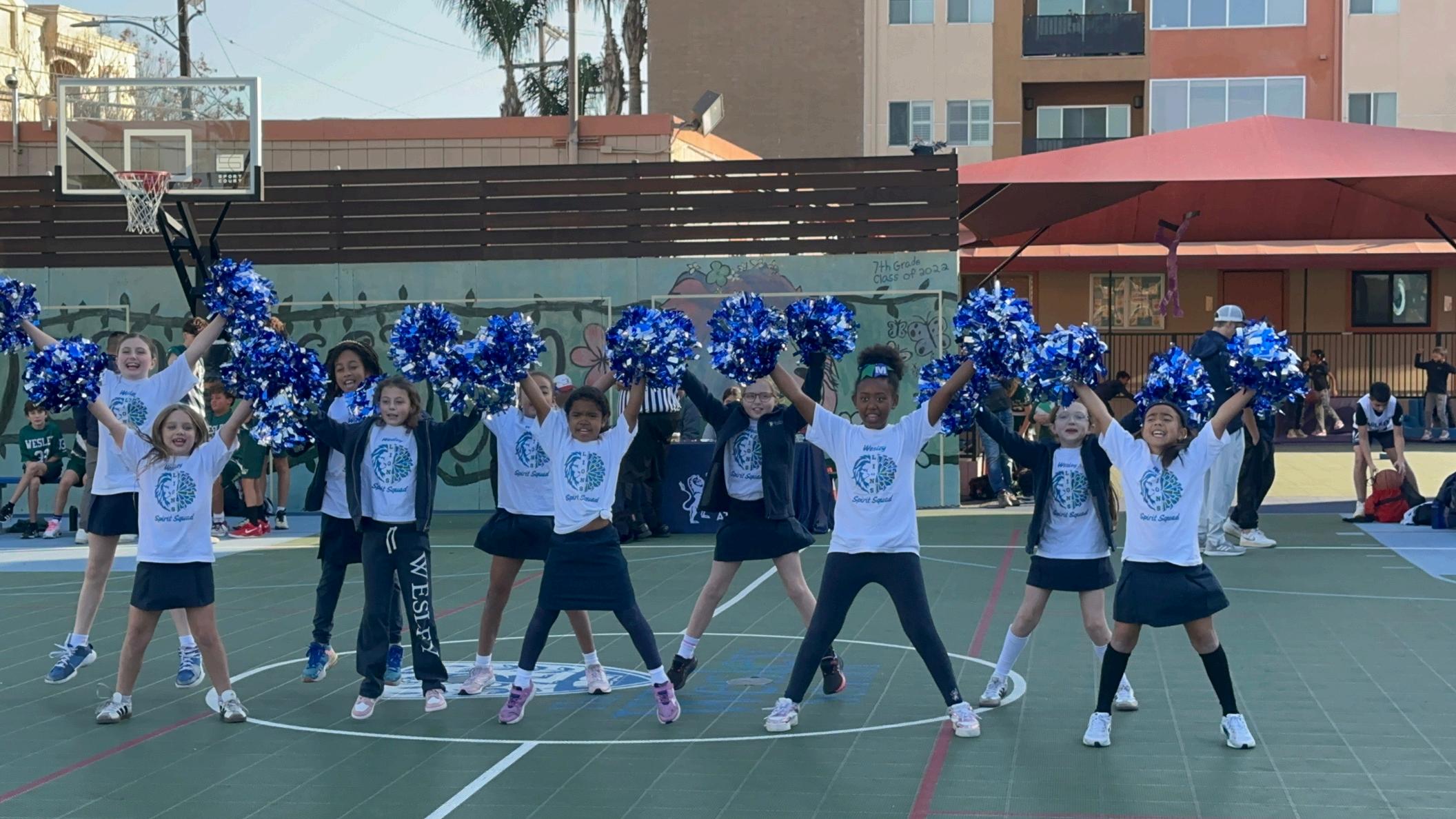


The school can administer medication to students under specific conditions:
Prescription Medication: All prescription medications must be provided to the school in their original, pharmacy-labeled container. A completed Medication Authorization Form, signed by both the parent/guardian/caregiver and the prescribing doctor, must be on the August Schools Portal.
Over-the-Counter (OTC) Medication: For over-the-counter medications such as Tylenol (acetaminophen) or Motrin (ibuprofen), the school may administer these only with appropriate authorization by the parent/guardian as stipulated in the August Schools Portal. Parents/guardians must provide these medications to the school in their original, unopened packaging.
Please do not send cough drops or other non-prescribed medications to school with your child. These items should be administered at home, as needed. Sending them to school is neither safe nor appropriate, as it bypasses proper medical oversight.
If medication is administered to your child during school hours, you will be notified via text or a note sent home.
Before the first day of school, every student must have a complete record of health examination, including all immunization dates, uploaded through the August Schools Portal. All medical information, including emergency contacts and updated home and cell numbers, must also be current in the portal before school begins. It is the parent/caregiver's responsibility to immediately report any changes to emergency contacts, home addresses, or phone numbers through the August Schools portal. Students will not be permitted to attend classes in September without a complete immunization record. California law mandates specific immunization requirements for all students and an oral assessment form in order to complete registration. This includes students in kindergarten. Additionally, students entering 7th grade and above must provide proof of the Tdap (whooping cough) booster shot. All submitted immunization information is for official school use only and will not be shared.
At Wesley, we want to support every aspect of our students’ lives, so please, in the event of a major family crisis, inform a school counselor, your child’s teacher or advisor, or an administrator. The Wesley School has significant student support resources available, and we care deeply about our families’ well being. Please allow us to help.

Students who have had a contagious disease are required to provide a doctor's note clearing them to return to school. This includes, but is not limited to, the following conditions:
COVID-19: Students must meet the current public health guidelines for returning to school after a COVID-19 diagnosis, which typically includes being fever-free for 24 hours without medication and experiencing an improvement in other symptoms. A doctor's note is required.
Head Lice Policy: Students may return to school once they have been treated and are free of live lice. A doctor's note or a note from a medical professional confirming treatment and absence of live lice is required. Please note that routine on-campus lice checks are not conducted by school staff. We will only institute a campus-wide check by the "Magic Nitpick Company" if we become aware of three or more confirmed cases of head lice within a single grade level. If such a situation arises, you will be notified, and the company will be brought in to check your student. Additionally, you also have the option to take your child to a local lice removal company for treatment.
Conjunctivitis (Pink Eye): Students may return to school 24 hours after starting treatment and when eye discharge has resolved. A doctor's note is required.
Chickenpox: Students may return to school once all lesions have crusted over, typically 5-7 days after the rash appears. A doctor's note is required.
Mononucleosis ( Mono): A doctor's note clearing the student to return to school is mandatory. This note should specify any necessary restrictions or accommodations.
Fever: The student must be fever-free for at least 24 hours without the use of fever-reducing medication.
Hand, Foot, and Mouth Disease (HFMD) is a common viral illness, particularly among young children, characterized by fever, sore throat, and a rash with blisters on the hands, feet, and sometimes in the mouth. While generally mild, it is highly contagious.
Direct contact with nose and throat secretions (saliva, mucus, blister fluid)
Respiratory droplets from coughing or sneezing
Sore throat and painful mouth sores (which can make eating and drinking difficult)
Rash with small, red spots, sometimes blistering, on the palms of the hands, soles of the feet, and occasionally buttocks.

RSymptom Improvement: The student should experience significant improvement in symptoms and feel well enough to participate in school activities.
If mouth sores are present, the student should not have excessive drooling that cannot be managed.
Blisters are Drying/Crusting Over: Open or weeping blisters are highly contagious. Students should not return until their blisters have dried up or scabbed over.
Well Enough to Participate: The student must feel well enough to participate in regular school activities. If a child is overly uncomfortable, fussy, or unable to participate due to symptoms, they should remain at home.
Doctor's Note (Recommended if Severe/Uncertain): While often not required for mild cases, a doctor's note clearing the student to return to school is recommended if there are any uncertainties about their condition or if symptoms are severe.
Important Note on Contagion: It is important to understand that individuals with HFMD can shed the virus in their stool for weeks, even after symptoms have resolved. Therefore, exclusion from school primarily aims to manage acute symptoms and reduce the spread of highly infectious secretions/blister fluid, rather than completely preventing all transmission.


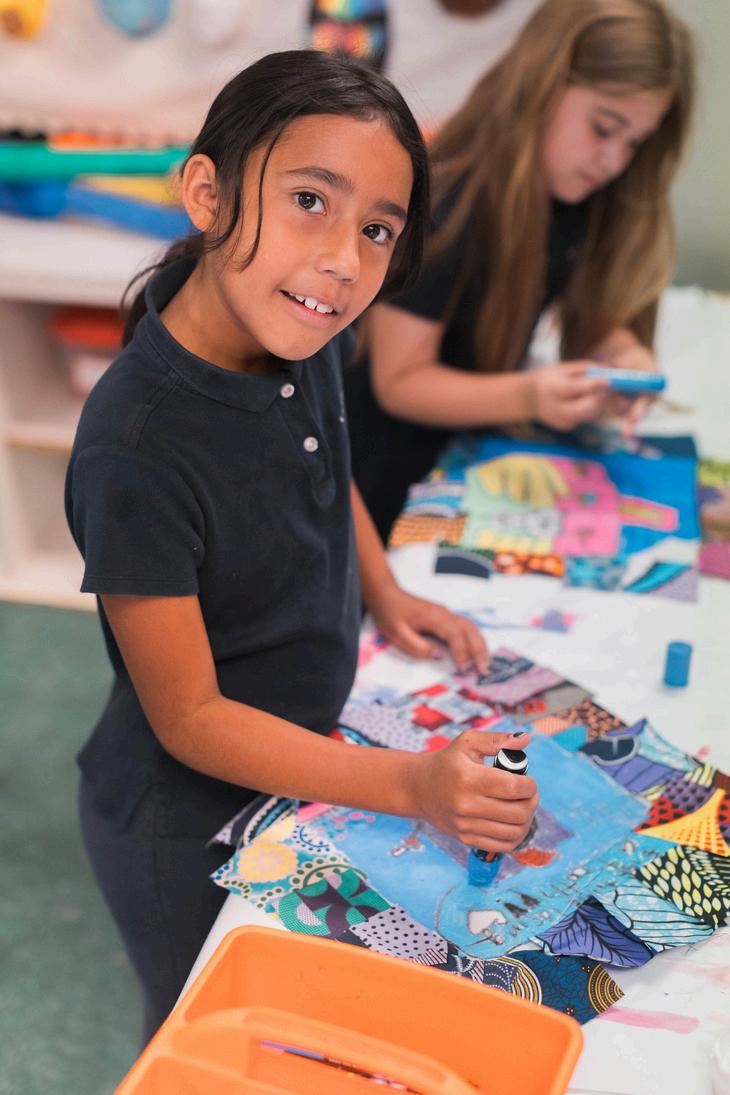


Strep throat is a common bacterial infection that causes a sore throat, often accompanied by fever and other symptoms. It is highly contagious and, if left untreated, can lead to more serious complications. It is caused by Streptococcus pyogenes bacteria and is spread through:
Direct contact: Touching contaminated surfaces and then touching the mouth, nose, or eyes.
Sudden onset of sore throat, often severe.
Pain when swallowing.
Fever (101°F or higher).
Red and swollen tonsils, sometimes with white patches or streaks of pus.
Tiny red spots (petechiae) on the roof of the mouth (palate).
Swollen lymph nodes in the neck.
Headache, stomach ache, nausea, or vomiting (especially in younger children).
Treatment: Strep throat is treated with antibiotics. It is crucial to complete the full course of antibiotics as prescribed by the doctor, even if symptoms improve quickly, to prevent complications and reduce contagiousness.
To prevent the spread of strep throat and ensure the student's recovery, the following protocols for returning to school apply:
Antibiotics for at Least 24 Hours: The student must have been on a prescribed antibiotic for strep throat for a minimum of 24 hours before returning to school. This period is essential to reduce contagiousness.
Fever-Free: The student must be fever-free for at least 24 hours without the use of fever-reducing medication.
Significant Symptom Improvement: The student should experience significant improvement in their sore throat and other symptoms and feel well enough to participate in regular school activities. This includes being able to swallow comfortably.
Frequent Handwashing: Students and staff should wash hands thoroughly and often with soap and water for at least 20 seconds, especially after coughing or sneezing, before eating, and after using the restroom.
Cough and Sneeze Etiquette: Encourage students to cough or sneeze into a tissue or their elbow, not their hands.
Avoid Sharing: Discourage sharing of food, drinks, eating utensils, and personal items.
For the well-being of all students, we ask that students who have been ill be fully recovered before returning to school. If a student arrives at school exhibiting symptoms of illness, or becomes ill during the school day, they will be asked to return home.
In addition to the specific protocols above, please ensure your child meets the following general guidelines before returning to school:
Fever-Free: No fever (temperature of 100.4°F or higher) for at least 24 hours without the use of fever-reducing medication.
Vomiting/Diarrhea-Free: No vomiting or diarrhea for at least 24 hours.
Improved Symptoms: Significant improvement in other symptoms such as cough, sore throat, or congestion.
Your cooperation in adhering to these guidelines helps us maintain a healthy and safe learning environment for everyone

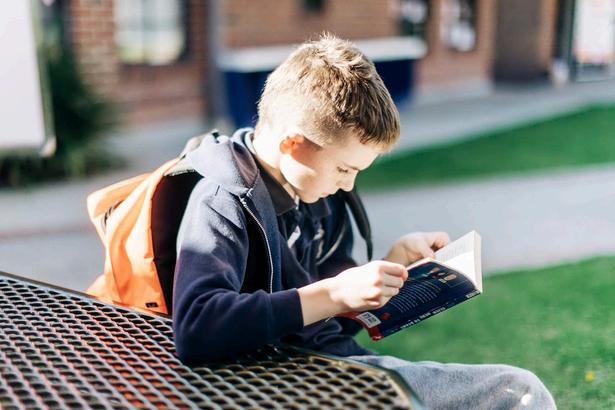



All employees of the School are mandated reporters who are required by law to file a report with a child protective services agency (CPS) whenever they learn information that leads them to suspect that a minor they encounter in the course of their employment has been subjected to sexual or physical abuse, including sexual assault. Employees are not permitted to investigate suspected abuse of a minor before making a report. Employees are also required by law to keep mandated reports confidential, so they may not be able to inform students or their parents if they make a report.
The school’s disciplinary process is separate from any CPS or law enforcement investigation. The school’s investigation is limited to whether there has been a violation of the school’s policies. The school does not conduct investigations in order to determine whether criminal activity has occurred. That is the role of law enforcement.

The Wesley School offers its entire community a wide range of electronic communications resources and technologies to support its educational objectives. These include, but are not limited to, computers and the Internet. Their use is a privilege, not a right. Proper usage is based on trust and judgment. Failure to adhere to these standards will result in having the privilege to use these resources suspended or revoked. Additionally, it may result in discipline up to and including expulsion. Students may be disciplined for engaging in other conduct deemed, at the sole discretion of the School, as detrimental to the School, its mission, and/or harmful to other students.
The Wesley School recognizes that access to technology in school gives students greater opportunities to learn, engage, communicate, and to develop skills that will prepare them for learning, life, and citizenship. To that end, we provide access to technologies for student use.
Students are responsible for using devices legally, appropriately, responsibly, and kindly. Use of educational technology is subject to and governed by the same behavioral expectations set forth in the “How We Play” guidelines and elsewhere in the Family Handbook, and should students fail to adhere to our standards of use, they may lose the privilege of using these resources.
The following terms and conditions are meant to provide families with examples of prohibited conduct, but are not intended to serve as an exhaustive list.


Students agree to never use school computers for purposes such as the following:
To Direct Message.
To access or use any social media platform or forum of any kind.
To visit and post information and/or messages on social networking sites such as Facebook, Instagram, SnapChat, etc.
To access or use chat rooms.
To send messages using abusive, or otherwise objectionable language.
To engage in personal attacks, including prejudicial or discriminatory attacks.
To harass another person.
To knowingly or recklessly post false or defamatory information about a person or organization.
To enter contests, advertising, political lobbying, or personal commercial activities including online purchasing on sites such as eBay or Craigslist.
To post, send, or download copyrighted material without permission. Users are to respect the rights and the intellectual property of others in accordance with state and federal copyright laws. Transferring copyrighted material to or from the School’s computer without the express permission of the owner is a violation of Federal Law.
To access, send, or retrieve pornographic material.
To post inappropriate text files or files dangerous to the integrity of any network.
To circumvent security measures on school or remote computers or networks (hacking).
To attempt to gain access to another's resources, programs, or data.
To falsify one ' s identity to others.
To engage in the unauthorized exploration of the Network Operating System or to change any installed School software is strictly prohibited.
To disclose personal information, such as address, phone number, age, on the School system.
To download or upload software, games, or shareware.
To communicate any credit card number, bank account number, or any other financial information.
To gamble.
To use the name of The Wesley School on a social networking site.
To agree to meet with someone they have met online.
To engage in any illegal act, such as arranging for a drug sale or the purchase of alcohol, engaging in criminal gang activity, threatening the safety of a person, etc.
To post chain letters or engage in “spamming.” Spamming is sending an annoying or unnecessary message to a large number of people.
If you mistakenly access inappropriate information, you should immediately tell your teacher or an administrator. Additionally, to the extent parents inform the student that there is additional material that they think would be inappropriate for the student to access, the School expects that the student will follow their parent or caregiver’s instructions in this matter.
Each student’s online communication is a reflection of our School. E-mail to and from our School is like a postcard: it is not private and may be monitored as needed. Therefore, students have no right to privacy as it relates to use of the School’s electronic resources. The School has the right to monitor all communications on its server and electronic equipment.
Students must promptly disclose to their teacher or other administrator any message they receive that is inappropriate or makes them feel uncomfortable.
All users are responsible for practicing positive digital citizenship, which includes appropriate behavior and contributions on websites, social media, discussion boards, media sharing sites, and all other electronic communications, including new technology, both on and off campus. Whether you are online or off, on campus or out in the world, you represent the Wesley Community, and it is very important that you act accordingly. You should remain aware that all activity on the school laptops is monitored by GoGuardian, which will generate alerts to our technology department if a student visits any inappropriate or concerning websites.
It is essential that the School’s comp are never disrupted by any virus or m For that reason, using School comp open any internet-based e-mail sys other than your @wesleyschool.org e address is strictly prohibited



The entire community suffers when computer systems are disrupted. Students agree to refrain from vandalism, including the following: attempting to access the files or folders of others or to bypass the security software; revealing passwords to others; unauthorized installation, removal, or copying of any software or data files; modifying or circumventing any computer software or network settings; or changing any hardware connections or cabling.
Additionally, students agree to use devices with appropriate care and respect. They will refrain from reckless behavior and handling of devices to avoid any physical damage, both willful and accidental. Parents will be held financially responsible for the cost to repair or replace any device or hardware damaged seriously due to the negligence and/or recklessness of a student.
Students agree to respect others’ privacy and not use another person ’ s account or password, even with that person ’ s consent. Students must also not disclose or allow others to use their passwords.
Students are responsible for producing their own work in completing school assignments. Downloading and copying another individual’s work from the Internet without crediting the author is plagiarism. Copyright violations include the copying of computer software or written materials without the permission of the author. Work that is AI generated, such as that using ChatGPT or similar tools, is also considered plagiarism without citing sources.
Students agree to report any misuse of the system to an appropriate staff member. A signed AUP Agreement must be on file before access to computers is granted. A student who does not adhere to these policies will be suspended from computer use and may be subject to additional disciplinary action.

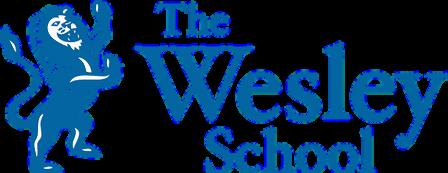
As members of the Wesley Community, all students and caregivers are expected to read, discuss and understand the contents of the Family Handbook, including the Wesley School Community Expectations: “How We Play” guidelines.
All families are required to complete an electronic form each year indicating their agreement to comply with the Handbook, our “How We Play” Community Agreement, AUP Policy, and Cell Phone Policy. This form must be completed before students are given access to their laptops, Chromebooks, etc., at the beginning of each school year.
Please click here to complete the 2025-2026 Acknowledgement Form.